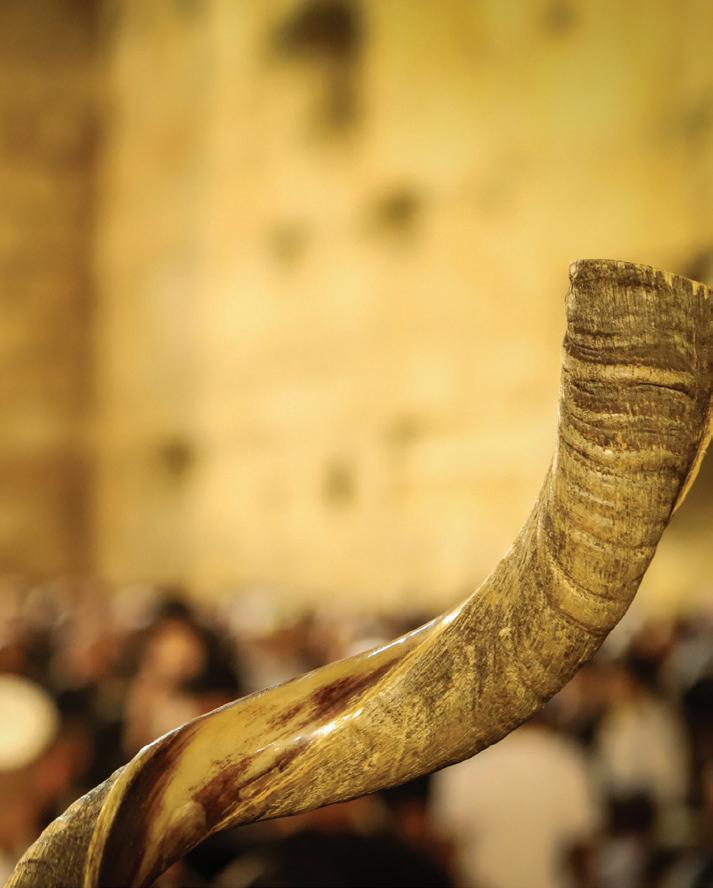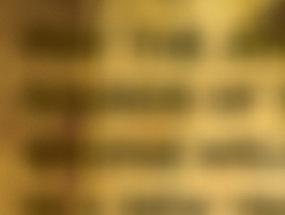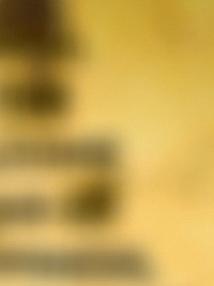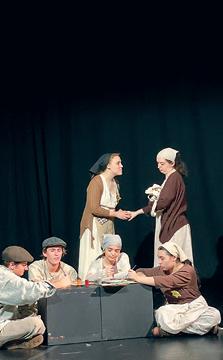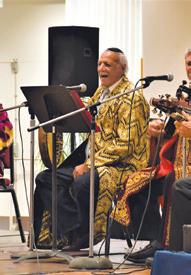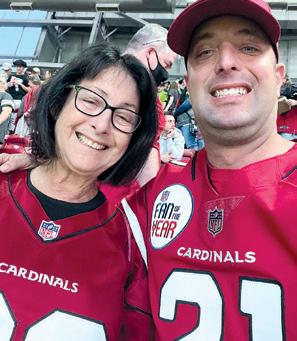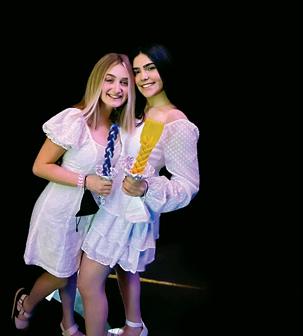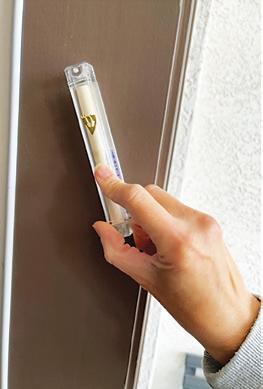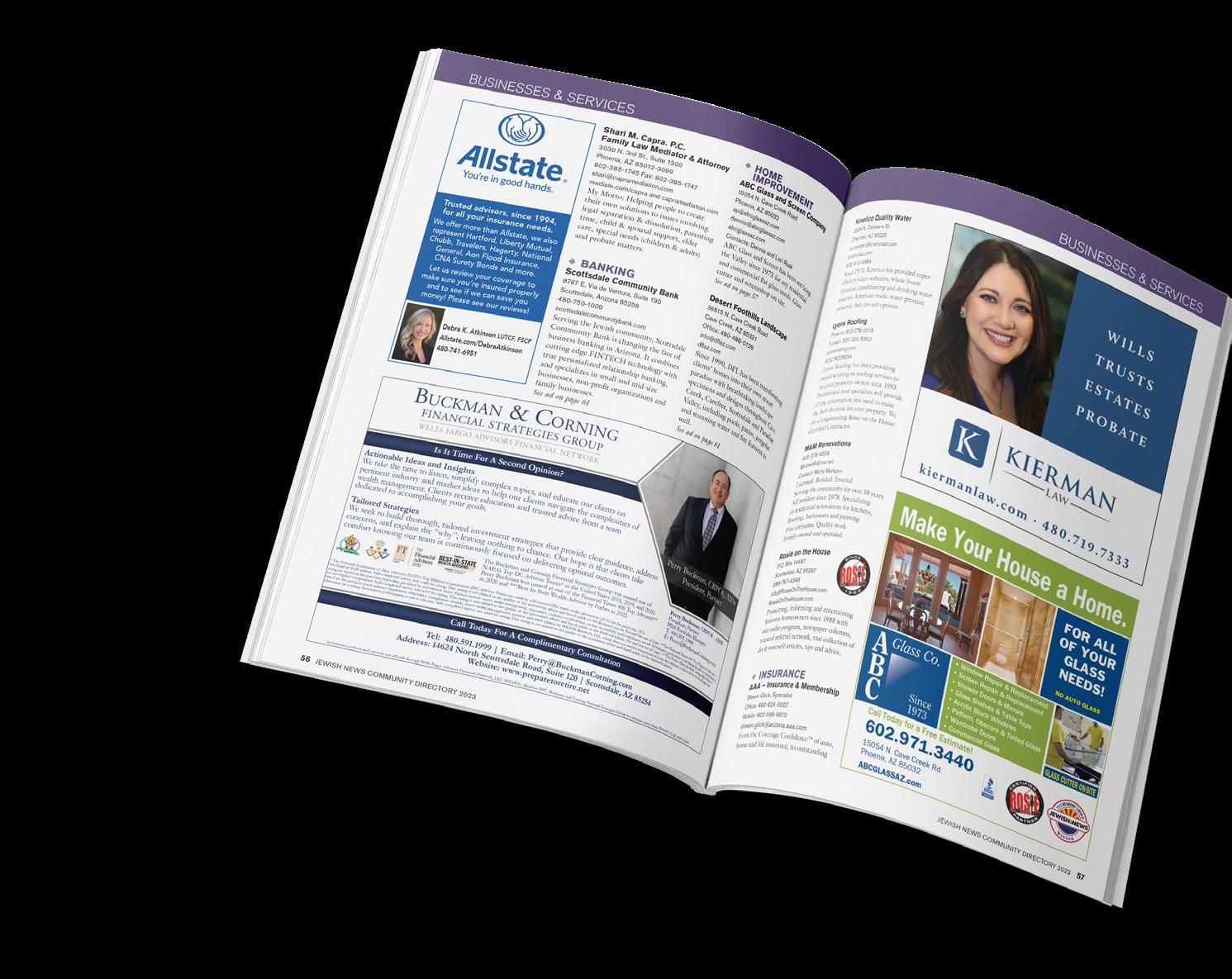ELECTRIC
CARS ON SHABBAT?
Most Conservative rabbis say yes

SENIOR LIFESTYLE
Tips for aging in place, how to reduce stroke risk, meet an end-of-life doula and the ‘Honey Girl’ shares her story


CARS ON SHABBAT?
Most Conservative rabbis say yes

Tips for aging in place, how to reduce stroke risk, meet an end-of-life doula and the ‘Honey Girl’ shares her story

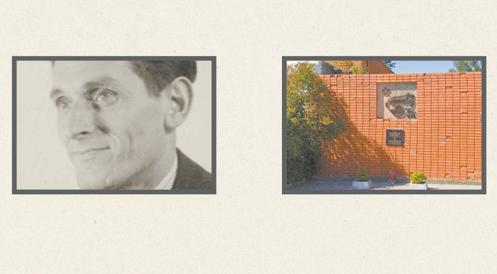 SHANNON LEVITT | STAFF WRITER
SHANNON LEVITT | STAFF WRITER
Brian Schanerman climbed into the driver seat of his car late Friday morning with a touch of apprehension. He was preparing to drive more than 100 miles north to Prescott with something very precious buckled into the seat next to him.

On Aug. 11, Congregation Or Tzion in Scottsdale officially lent one of its Sefer Torahs to Prescott’s Temple B’rith Shalom. Or Tzion board member Robert Young and Rabbi Andy Green made the handoff to Schanerman after wrapping the 1960s-era Torah in a tallit for the car ride to its new home, where it will spend at least the next five years — and maybe longer.
B’rith Shalom Rabbi Susan Schanerman waited for her husband to arrive in Prescott with the Torah before sending her pre-Shabbat email to congregants, letting them know about it, though some were surprised by the announcement at the service itself.

“It was a wonderful turnout, just lovely,” she said. “Our president, Deborah Plotkin, paraded the Torah and we sang and people kissed it — it was exciting.”
“It was such a mitzvah for me to be the one carrying it and I could see the joy on everyone’s faces,” Plotkin said. “The vibe in the whole temple was so heartwarming — it really gave a shot of vitality to the community.”
B’rith Shalom has two Torahs of its own, however, one is so old it’s no longer legible and the other needs repairs.
When Rabbi Schanerman learned from one of her congregants, who is also a member of Or Tzion, that the Scottsdale synagogue might be willing to part with one of its Torahs, she contacted Young to ask about purchasing one.
Young brought the request to a board meeting, where it was decided unanimously that rather than burden a small congregation with the significant expense of buying
The University of Arizona Wildcats men’s basketball team went to Israel on a summer trip starting Aug. 9 and concluding on Aug. 20. Arizona — National Collegiate Athletic Association (NCAA) rules allow teams to take overseas trips only every four years — played the Israel Select Team, a squad comprised of some the best Israeli players including Ryan Turell, the first Orthodox Jew attempting to play in the NBA. Arizona also played games in Abu Dhabi, United Arab Emirates.
The trip was organized by Athletes for Israel, an organization that brings high-profile athletes to Israel. According to their website, Athletes for Israel uses sports as a platform to “combat antisemitism and racism while changing the narrative of Israel.”
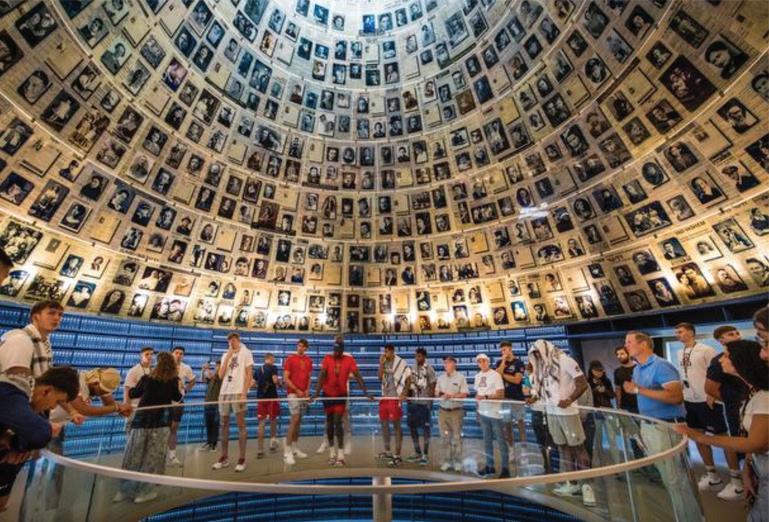
Athletes for Israel founder Daniel Posner strongly believes that sports can be used to create societal change. That change, as Posner sees, starts with the head coach. As the 2022 AP National Men’s Basketball Coach of the year, coach Tommy Lloyd, head coach of the Wildcats, is a household name in the college basketball universe. Yet, Posner paid attention to the person coach Lloyd is rather than the X’s and O’s, essentially calling Lloyd a mensch.
SEE WILDCATS, PAGE 3
Enjoy seven sweet facts about Rosh Hashanah you may not know. See page 19.

A large part of Lloyd’s leadership skills is putting the student before the athlete. As a team, the players took an upper-level public and applied humanities course called Intercultural Competence: Culture and Identity. This was an effort to get the ball rolling (dribbling) on the education Lloyd expected his players to experience.
“It has the oldest written history that we know in our societies and with all the religion and the battles that have been fought over Jerusalem over thousands of years — I think it’s so rich in history,” he said.

The pre-trip education was eye opening even for Lloyd, who’s been to Israel before.
“I’m learning more. What’s cool is it’s literally one of the most globally innovative places for technology in the world,” he said.

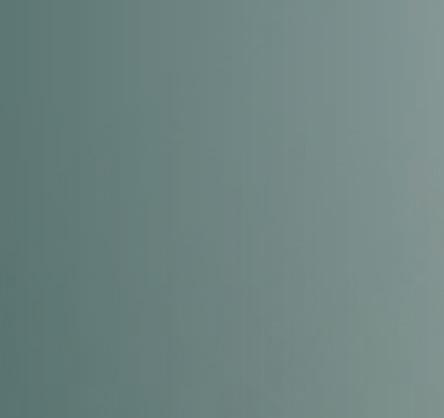


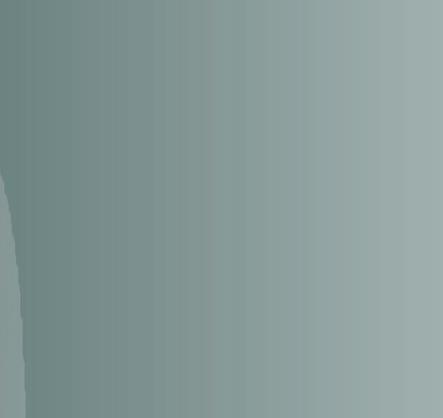



This trip wasn’t simply about changing the cultural perspective on Israel, it’s also about celebrating the rich basketball tradition in Israel.
He cited Israeli basketball legend and former Cleveland Cavaliers Head Coach David Blatt.
“I became really close with coach Blatt and I consider David a mentor of mine.”
Steve Hilton, stalwart of the Jewish community, became an Arizona Wildcat fan when he started his college career at the University of Arizona 44 years ago. For the last five years, he led a small group of businessmen in their 30s to Israel.
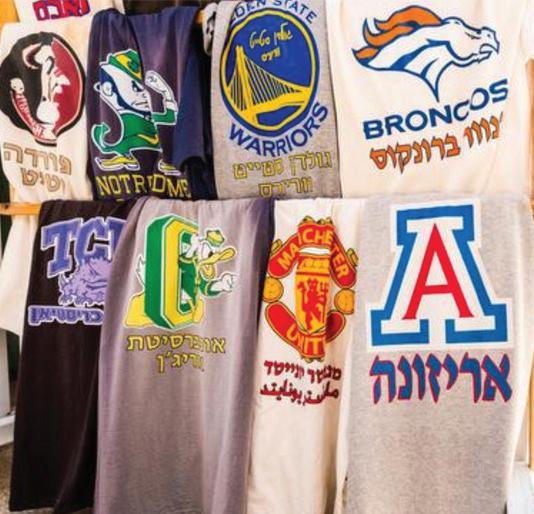
“Helping young men and women learn about the history of Israel and what makes it so important to the Jewish people, fits exactly within my personal objectives,” he told Jewish News via email. “I believe once you visit Israel, you will better understand why we all need to stand up to antisemitism and hate. This trip was an exciting way to engage many of our future sports heroes on this topic.”
The team spent their first three days in Jerusalem, seeing the Old City, visiting the Kotel and also spending time in Bethlehem.
The second day they traveled to the West Bank to visit Bethlehem and the Church of the Nativity before being invited into their tour guide’s home for a “homemade Palestinian lunch.” This was before the Wildcats visited Yad Vashem: The World Holocaust Remembrance Center. The night concluded with a Shabbat service, as well as the team shooting a video in which they laughed at themselves struggling to pronounce, “Shabbat Shalom.”
The trip to Yad Vashem was particularly poignant for Lithuanian freshman Motiejus Krivas. Krivas who talked about how the experiential education of the museum differed from his Lithuanian schooling.
“We learned about it in school, but it was interesting to learn some new things,” he told the Arizona Daily Star. “It was hard and disturbing. In school you learn mostly from books. You don’t see so many visions like this.”
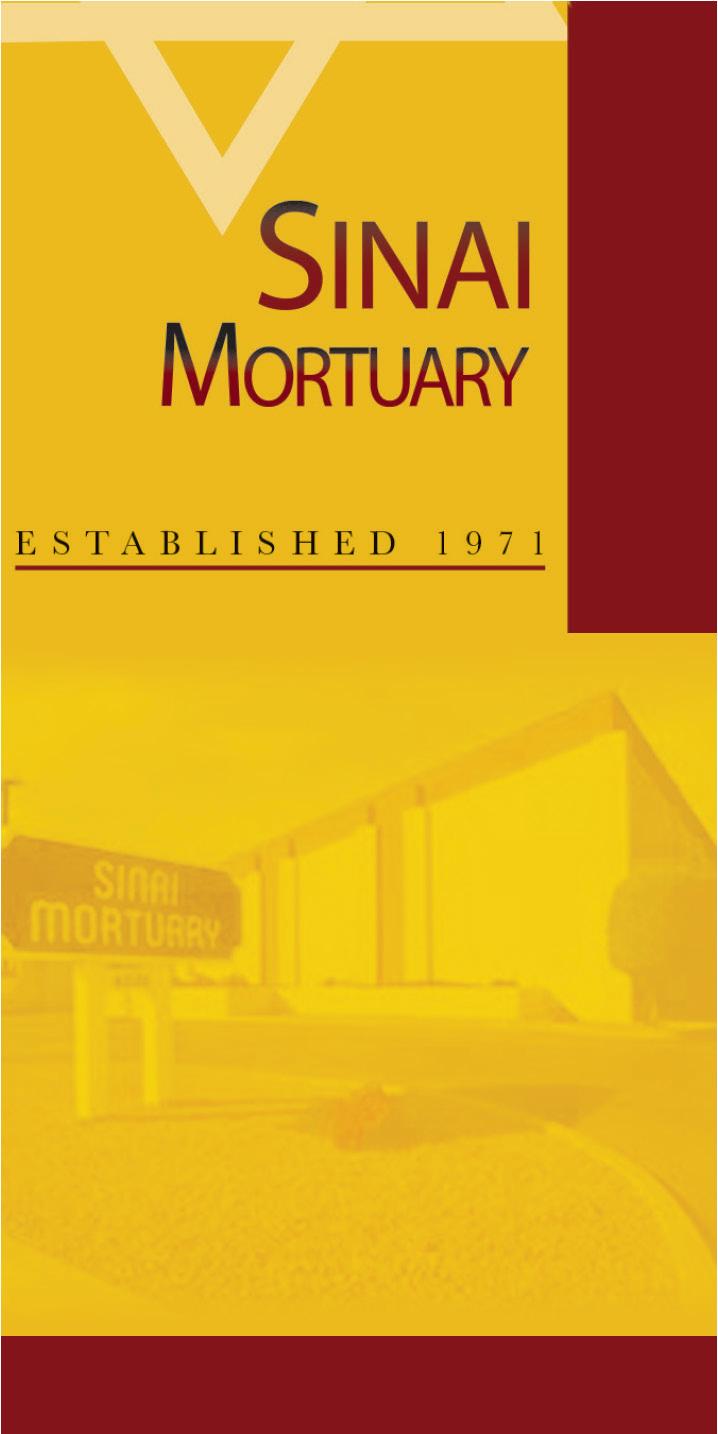
Before the Wildcats left Jerusalem, they held a practice at Israeli Club Hapoel,
Jerusalem’s practice facility, where they invited a bunch of young Israeli players for a clinic and to spend time with the team.
After practice, they traveled to the Dead Sea. Swedish senior Pelle Larson exclaimed in a video blog, “Bro, I’m just sitting in water right now. It’s like a water couch!”
The next day was Arizona’s first game, played against the Israel Select team. The Israel Select team was essentially an all-star team, led by Turell. Interwoven within the team’s pregame routine was a presentation from StartUp Nation, as well as a trip to the Shuk HaCarmel, Tel Aviv’s biggest open-air market.
The Wildcats won every game they played on this trip, starting with beating the Israel Select Team 124-77. Six players scored double figures, led by San Diego State transfer Keshad Johnson with 24 points. Additionally, every non-injured player on the roster played in the game.
The following day was spent in the Old City of Jaffa, with free time in Tel Aviv as well.

University of Arizona President Dr. Robert Robbins was taken on a special trip by Posner. He took Robbins, a former cardiac surgeon, to the Sylvan Adams Children’s Hospital in Holon.
“To say that Dr. Robbins was impressed would be an understatement,” remarked Posner. “He experienced and saw with his own eyes that patients from all over the world including Gaza, the West Bank and several countries in Africa are receiving lifesaving treatment for their heart disease,” Posner continued.


This concluded the team’s stay in Israel. They then embarked on a historic flight from Israel to Abu Dhabi, the first taken by college teams on international trips (Kansas State’s men’s basketball program was on a connected trip, also through Athletes for Israel).
“I am grateful to coach Tommy Lloyd, the University of Arizona leadership and Dan Posner at Athletes for Israel for making this trip such a success,” Hilton told Jewish News via email.

The team then traveled to Abu Dhabi where highlights included a visit to the Abrahamic house, where the Abraham Peace Accords were signed, as well as a visit to the Sheikh Zayed Grand Mosque. The players were also treated to riding ATVs and camels in the desert. While in the UAE, the Wildcats attended the USA national team’s exhibition game against Greece.
The Abu Dhabi portion of the trip was more basketball focused, with the Wildcats playing two games in three days. Arizona’s second game came against the UAE Select team, with the Wildcats winning 127-90. Six Wildcats scored double figures, Filip Borvocanin and Motiejus Krivas led the team with 17 points each.
Arizona’s biggest test of the three games came against the Lebanon National Team. Arizona won 85-71, this time led in scoring by Pelle Larson with 17 points

and Keshad Johnson who scored 14 points.
While Johnson had a plethora of highlights on the court, the best part of the trip was experiencing Israel. Penning a simple quote, Johnson wrote, “To Israel, words can’t explain how impactful this trip was for me. Thank you for the eye-opening experience. Hope to see you again.”
For a daily recap, photos and videos of the Wildcats’ trip, visit arizonawildcats.com/ SummerTour.
Scruffy Cohen covered University of Arizona athletics for several years, and combines their love of athletics and their love of Judaism in their work. They’re also a musician and music teacher. Twitter/X @scruffyguitar

Samantha Arko was just eight years old and about to start the third grade when she had her first troubling signs that something was wrong. She started having painful stomach cramps and when she spotted blood in the toilet, she went right to her parents.
“It was terrifying,” said Michael Arko, Samantha’s dad. “Immediately your thoughts go to cancer and then when you find out it’s not cancer you’re relieved, but it’s this other thing we have no knowledge of.”
Fortunately, Dr. Melissa Redleaf, Samantha’s pediatrician, had an inkling of what might be wrong and ordered a colonoscopy at Phoenix Children’s Hospital.
The colonoscopy proved that Samantha had inflammatory bowel disease (IBD), an umbrella term that describes disorders involving chronic inflammation of tissues in the digestive tract. It includes disorders such as ulcerative colitis, what Samantha has, and Crohn’s disease. The illnesses are managed with medication and diet but there is currently no cure.
Samantha is an Ashkenazi Jew, which increases her risk of developing an IBD disorder. Citing a study published in Nature Communications, Dr. Theresa Grebe explained that there is a two- to four-fold increased risk of developing IBD in the Ashkenazi Jewish population. Grebe is the medical director for the Minkoff Center for Jewish Genetics, a nonprofit organization based in Scottsdale that seeks to provide awareness, education and screening for Jewish genetic diseases.
“We were very fortunate because Dr. Redleaf has seen these symptoms with other kids. A lot of times IBD’s not correctly diagnosed for several years, which can really exacerbate the condition,” explained Michael.
In the two years since her diagnosis, Samantha’s treatment has been trial and error. Doctors must try different medications until they find something that works, even if it’s only for a while. Though she hasn’t been hospitalized, she’s spent a lot of time at hospital visits, missed school and soccer tournaments — and experienced a lot of pain.
“As a parent, you feel helpless and that’s a terrible feeling,” Michael said.
But Samantha is a girl of action, and she decided there must be some way she could help others going through the same
thing. She knew her parents were involved in philanthropy and sat on boards of organizations.
She turned to them and asked, “What can I do to help?”
The Arko family are members of two Scottsdale synagogues and Samantha is a regular camper at Camp Stein in Prescott, where she’s already spent part of this summer. At school, math and science are her favorite subjects and next fall she will attend Kiva Elementary School in Paradise Valley, where she tested into the comprehensive gifted program.
With the assistance of her parents, Samantha created the Inflammatory Bowel Disease Junior Board of Phoenix Children’s Hospital in 2022.
“I want to spread awareness and get this information out there because it’s more challenging for kids because less kids have it,” Samantha said. Most people are diagnosed in their 30s, though Dr. Brad Pasternak, Samantha’s gastroenterologist, said he’s seeing more young children with IBD.
Pasternak was “very impressed with Samantha’s motivation and dedication to the cause” as well as the unique patientand friend-run program she created. His daughter is also on the junior board.
“It has given children a chance to experience philanthropy and support those with this chronic condition,” he said.
The board has created flyers and T-shirts to increase visibility. One of Samantha’s main concerns is that people who have it don’t like to talk about it. On the other hand, she is not inhibited at all.
“The more I talk about it with people, the more they tell me, ‘Oh, my dad has it,’ and stuff like that,” she said.
She and her fellow board members exchange ideas of ways they can spread the word as well as raise money for better treatments and possibly a cure. In March, a fundraising hike at the Phoenix Mountain Preserve raised $5,000. The board posts pictures on its Facebook page and texts people to spread the word.
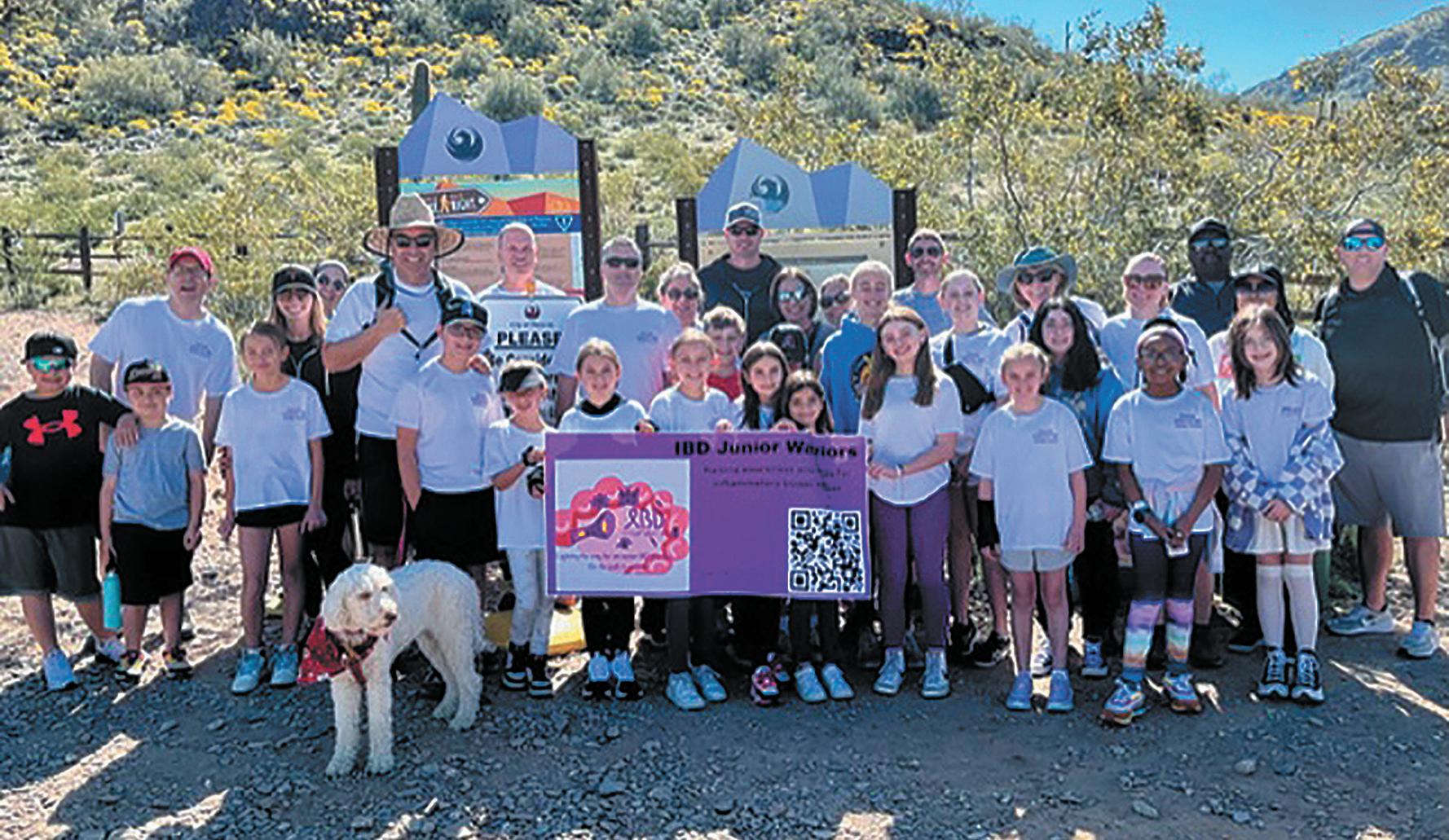
Samantha is the president this year, but she and the others developed a system where they would rotate roles. Instead of voting, they pick titles out of a hat and nobody is forced to do something they don’t want to.
Though Samantha has never been hospitalized, she knows other kids who have, including a girl who has spent months at
a time in the hospital. Thus, the junior board is also a way to offer emotional support to kids with IBD, a place they can share their personal experiences with others who get it on a gut level, so to speak.
“We knew we’d create awareness and raise some money, but it’s created this support group and for every new child that is diagnosed, information is passed along that there is this group that meets on a monthly basis,” Michael said.
Last winter, the board held a toy drive that brought in 75 presents. When kids with IBD are hospitalized, the doctors now have a nice gift to give them and
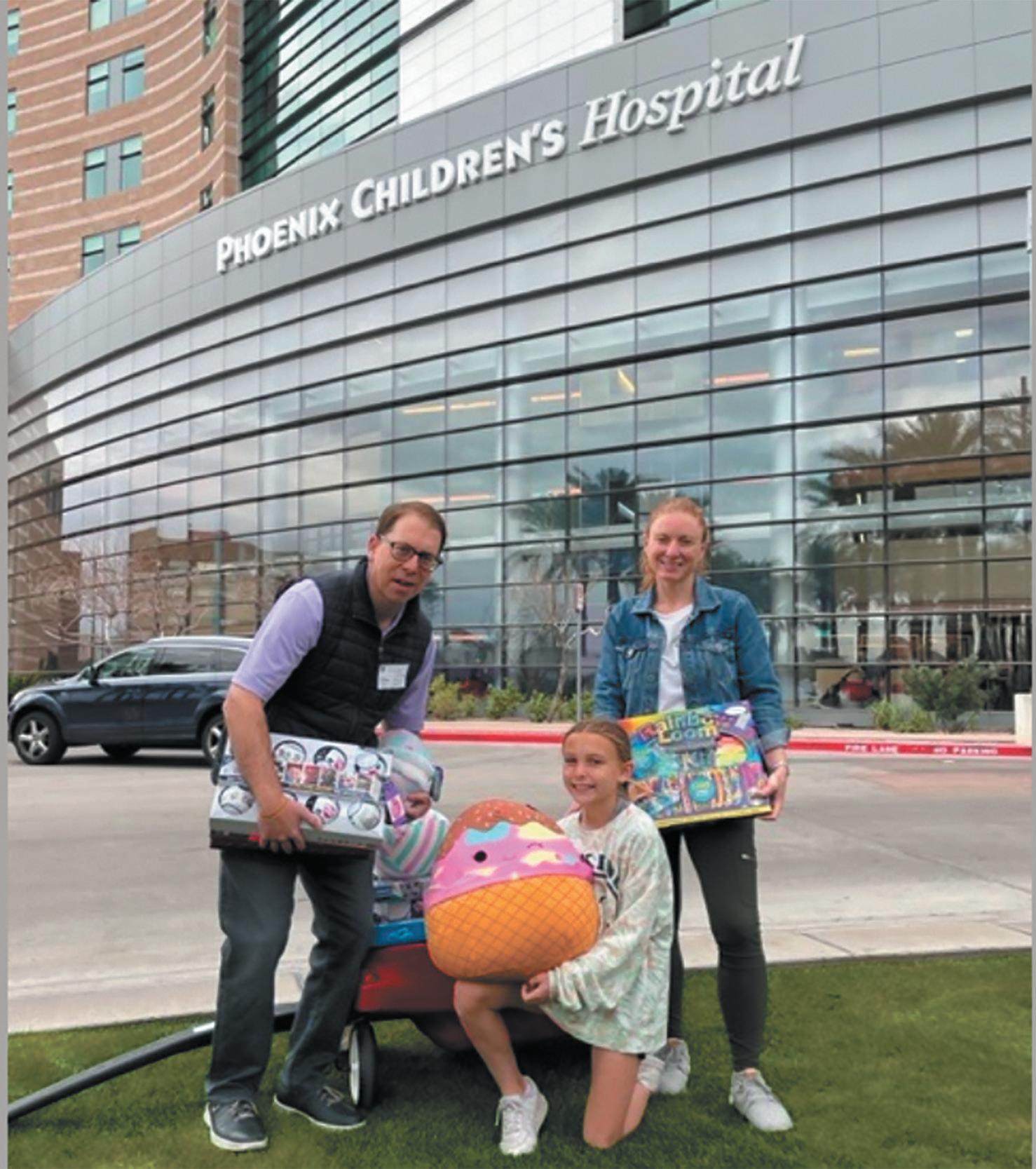
help them feel somewhat better about their predicament.
Samantha invites anyone who would like to participate in the junior board to check it out.
“I’m honestly just letting people know about it because a lot of people don’t know, so I feel like I’m helping. And I just want to be able to help more and more,” she said. JN
For more information, visit IBD Junior Board-Phoenix Children’s Foundation at phoenixchildrensfoundation.org.
Howard Epstein has been a real estate executive with Bank of America in Phoenix for more than 30 years — and he’s been fighting the problem of homelessness in Arizona for nearly as long.
In August 2019, Epstein launched a new initiative, the Arizona Housing Fund, which is raising millions, $25 at a time, to house homeless individuals and families.
The fund partners people and businesses involved in buying or selling a home with nonprofits that build affordable housing with supportive services. The mechanism is simple: at a home sale closing, buyers, sellers, realtors, title companies and home builders are invited to donate $25 to the Arizona Housing Fund’s escrow donation program. Nonprofits apply to the fund for grants.
Epstein’s volunteer work reflects his Jewish values. He is a longtime member of Scottsdale’s Congregation Beth Israel and celebrated his bar mitzvah there almost 50 years ago. He said his parents, Bette Mae and the late Larry Epstein, modeled tzedakah and community service and he also was a member of a BBYO youth group chapter with a focus on community service.
He served on the board of Central Arizona Shelter Services for more than 20 years, at Bank of America’s request. He also chaired Arizona Housing, Inc., a nonprofit organization that promotes and develops affordable, supportive housing, for almost 15 years, and still remains on its board. Working with these nonprofits, he saw people go from emergency and transitional shelters or off the streets into permanent housing.
“I got to actually see the system working and so I tried to figure out a way to get more money to those nonprofits who do that kind of housing,” he says.

Inspiration for the fund came from cash register round-up promotions at grocery and other stores. Epstein was particularly impressed by PetSmart Charities, which raised $600 million over 30 years.
The Arizona Housing Fund, which aims to raise $100 million over 20 years, began distributing grants in 2022, when it hit $1 million. The first round of grants, totaling $850,000, went to four agencies creating nearly 200 new low-rent housing units in Phoenix, Glendale and Chino Valley.
In July, the fund announced a second round of grants totaling $500,000. Four new projects will provide almost 250 units in Phoenix, Flagstaff and Page.
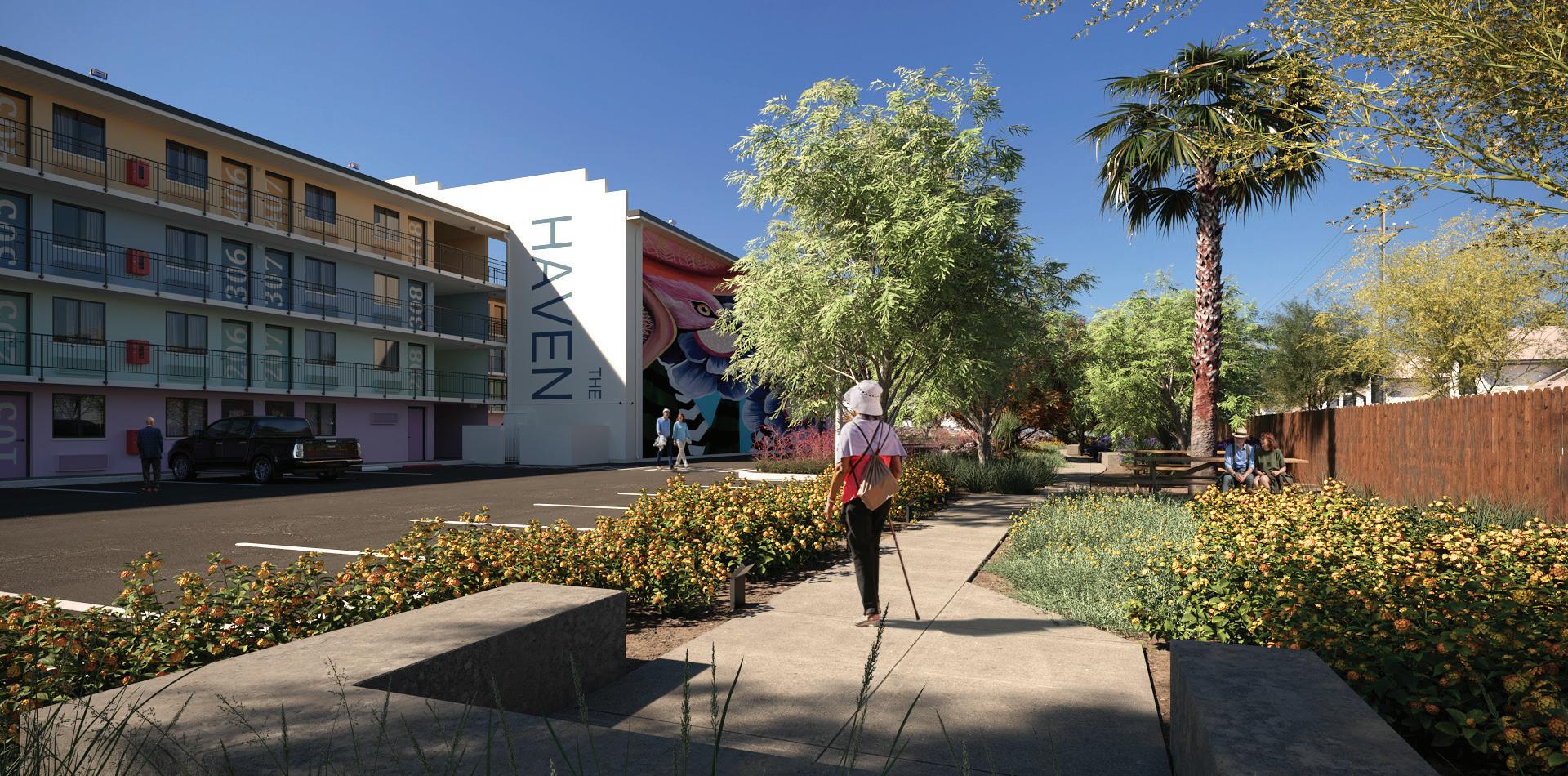
Epstein explained that Arizona Housing Fund grants often come into play when projects with state, city or county funding go over budget. For example, Arizona Housing, Inc. budgeted $7 million to convert a hotel to house previously
homeless veterans and seniors. By the time the project got underway, the cost was $7.3 million. An Arizona Housing Fund grant made up the $300,000 shortfall.
Homelessness in Arizona has grown dramatically in recent years, increasing by more than 23% from 2020 to 2022. An estimated 13,500 Arizonans are currently homeless, according to the latest U.S. Department of Housing and Urban Development data. Shelters are at capacity, so more than half of the people experiencing homelessness live on the street or in cars.
Rising rental costs are a major factor.
“When you raise rates on somebody who was paying $800 a month, and the market says you can charge $1,400 a month, some people are going to end up homeless,” said Epstein. He believes the Arizona Housing Fund can help Arizona communities avert a crisis on the scale of Los Angeles or San Francisco.
Epstein said the response to the fund has been great, with 90% of the money raised so far coming through the escrow program. The Arizona Association of Realtors promotes the program and major home builders like Meritage Homes have pledged matching donations.
Direct donations from individuals, families, foundations and corporations also play a part, along with contributions from commercial property transactions.


Epstein is excited about the fund’s new rental application program. Supported by the Arizona Multihousing Association, it encourages companies in the apartment industry to donate $5 for each new application. Applicants can also donate $5.

A pilot program was “super successful,” he said, and with several hundred thousand apartments changing hands every year in Arizona, “it’s going to mean millions of dollars a year coming into the Arizona Housing Fund.”
The Arizona Community Foundation manages the Arizona Housing Fund, so there are no overhead costs. “One hundred percent of every dollar we raise goes to the cause,” Epstein says.
Arizona Housing Fund advisory board member Steve Hilton, the chairman of Meritage Homes, called the fund “the game changer our community needs.”
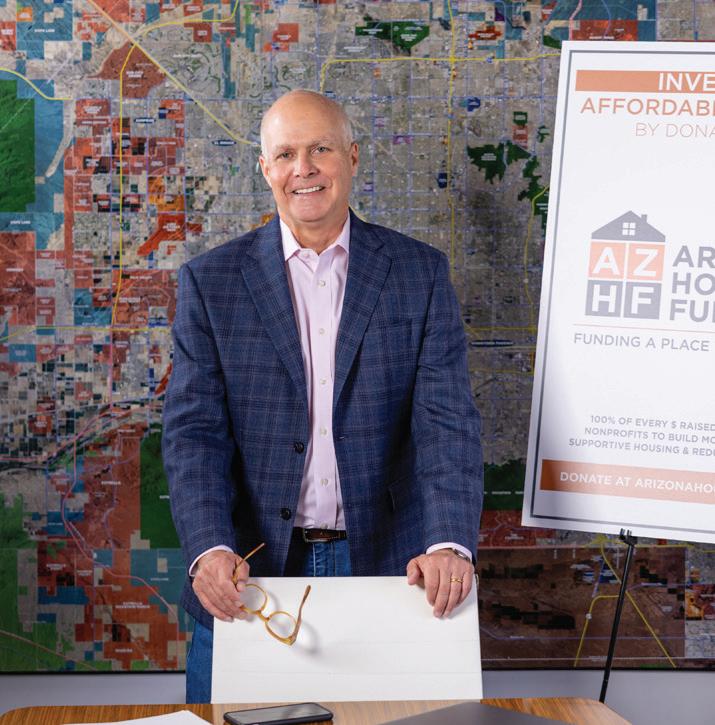
Epstein’s family is involved, too. His son, Ben, and a group of baseball-loving friends created Homers for Housing, donating to the fund every time an Arizona Diamondback player hits a home
run. Epstein’s wife, Chris, helps with administrative tasks for the fund.
Epstein encouraged people to follow the fund’s social media, which highlights other efforts to fight homelessness. JN
For more information, visit arizonahousingfund. org.

By the end of her first day of work at Beatitudes Campus, a Phoenix senior living community, Karolyn Benger knew she had chosen the right place for her chaplain internship. Even the morning staff meeting, which included all departments from maintenance to spiritual care, impressed upon her how much thought and attention was given to each resident.
Because it was a Monday meeting, everyone was catching up on weekend developments. People were particularly concerned about a disabled woman who worried she would not be able to get to a worship service. She insisted on finding her way alone before and had gotten a bit lost. With record-setting high temperatures, nobody wanted that to happen again. Rev. Peggy Roberts, Beatitudes vice president of spiritual life who oversees Benger’s internship, reassured everyone that the woman had indeed been escorted to the service safely.
“The level of care and concern for each individual was really overwhelming. It was the most beautiful thing,” Benger told Jewish News.
Benger just completed her first year of coursework at Yeshivat Maharat in Riverdale, New York. It is the first Orthodox yeshiva in North America to ordain women as clergy and was founded in 2009. Benger first applied several years ago but was told she would have to move to New York. Since that wasn’t an option, she dropped it. However, when she got a call from the school a few years ago encouraging her to apply, she discovered that she could now take classes virtually and remain in Phoenix.
She spent her first two years studying in the yeshiva’s beit midrash program, a preparatory course to hone her skills before the traditional rabbinical training began. Before she can receive her smicha, or ordination, she is required to complete three internships, one in chaplaincy, something Benger approached with trepidation — “it’s just not my thing,” she said.
“But from the first moment of the first day, it’s just been amazing.”
Because Maharat is in New York, its internship connections tend to be in the
northeast, which meant Benger would be on her own in finding one. Luckily, Benger is very involved in the Arizona Interfaith Movement, and had some connections at Beatitudes. She reached out to Roberts who told her there was no existing chaplain internship, so they decided to create one together.
Benger will devote 100 hours to Beatitudes, focusing on pastoral care and counseling, teaching classes and “really just being available for people. I’m there to provide care and comfort to the residents — whatever care they might need — from the most basic logistical things to deep emotional interactions,” Benger said.
“Chaplaincy training is essential in preparing future rabbis to provide spiritual and pastoral care for individuals experiencing illness, loss, grief, and trauma,” Esther Altmann, Maharat’s director of pastoral education, told Jewish News.
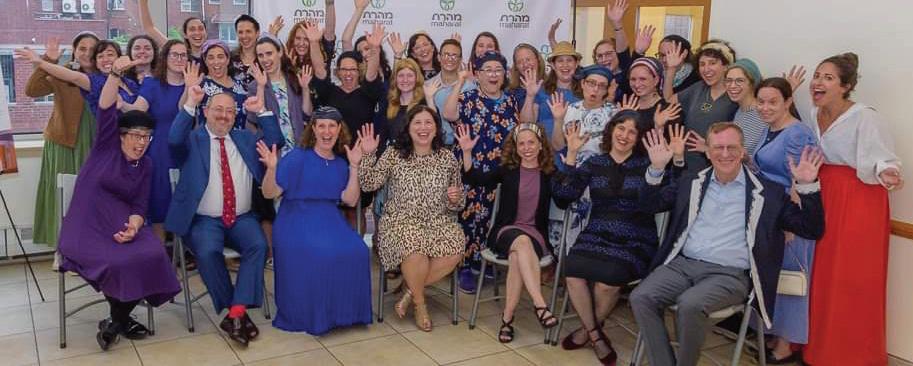
Chaplaincy training is required because of the many skills it imparts to rabbinical students.
“It invariably nurtures students’ personal growth and self-knowledge, enhances their interpersonal skills and stretches their capacity to hold people in dire circumstances with equanimity and wisdom. When so many people are struggling with loneliness, anxiety and a sense of alienation, our graduates are at the forefront, meeting people’s yearnings for spiritual support and guidance,” said Altmann.
As Benger’s first week at Beatitudes ended, Roberts said she is pleased with how the internship is going.
“Karolyn’s energy is good, she self-initiates and she appears to be a good listener,” Roberts said. Best of all is the residents’ excitement about Benger’s presence.
There are only about 30 Jewish people living at Beatitudes out of a total population of 650 across all levels of care — “When aren’t we a minority?” laughed Benger.
Many religious denominations hold services on the premises and several years ago, a Jewish couple created twicemonthly non-denominational Jewish services. Though Benger is on the path to rabbinic ordination, she is not there to lead religious services and will work with everyone, regardless of religious affiliation.
“My role is really to provide counsel and comfort. Next week I’ll be facilitating a mental health support group and teach-
ing a class on Judaism and Jewish prayer. Later I’ll teach a class on charity, mingle with residents and let them know there’s someone else here for them,” Benger said. A chaplain’s job is to serve residents, their family members and the staff. During the time she’s there, Benger hopes to get to know as many people as she can to form relationships and garner the kind of trust needed by people seeking counseling and guidance.
“Someone’s not going to reach out to you at their low point if they don’t know you,” she said.
Benger intends to stay beyond the internship’s required 100 hours “because I’m really just so happy there and just so impressed by everybody there,” she said.
She said she has always sought to serve the Jewish community and becoming a rabbi is an extension of that service. She believes that adding the title of “Rabbi” will help create connections and programming, especially when doing interfaith work, where it helps to give people a frame of reference.
“For women, titles are very important in lending legitimacy to our work,” she said.
In addition to her internship at Beatitudes, she is working on a second one with the American Jewish Committee that requires 10 hours of work every week. Her third required internship must be with an Orthodox synagogue.
Before she started, Benger thought of her time at Beatitudes as something she just had to get through. Now, she’s enjoying being part of the care team for the residents there and experiencing the breadth of the pastoral care she’ll one day be responsible for as a rabbi.
On the third day of her internship, Benger visited the health care facility and introduced herself to the staff and patients. Certain floors are dedicated to people with advanced dementia and Alzheimer’s disease. She saw people who had forgotten how to eat, so staff members had to feed them.
“They did it with compassion and dignity. Simultaneously, people had moments of lucidity and were conversing with me so that you would never know anything was wrong. It was just really powerful to process,” she said. JN
To learn more about Beatitudes Campus, visit beatitudescampus.org. To learn more about Yeshivat Maharat, visit yeshivatmaharat.org.
Driving to synagogue for Shabbat services has been an option for Conservative Jews since 1950, the year that the Conservative movement allowed Jews, who have no other way to get there, the use of their car.
Greater Phoenix’s urban sprawl means that Jews are spread out all over the city, some of them quite a distance from the nearest synagogue.
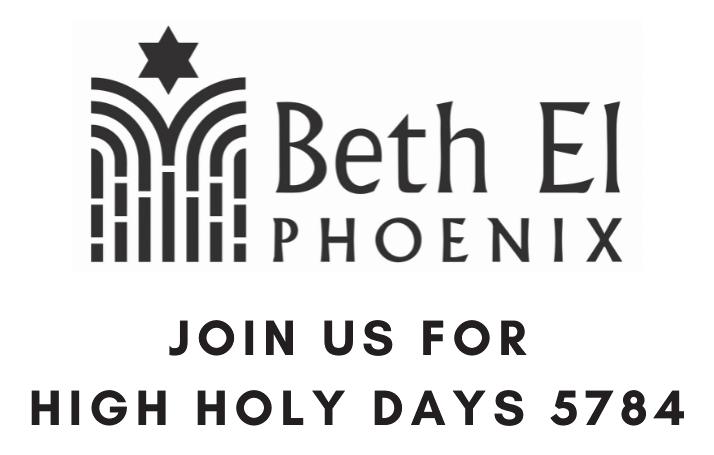
“A lot of us have made choices to be of use to Jews in these areas. They deserve a community as well,” Temple Beth Sholom Rabbi Tracee Rosen said. Even she has about a 25-minute drive to get to her Chandler synagogue.
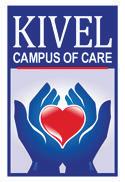
“I have a Prius but I can’t drive it 25 miles to shul without having the gas engine kick in,” she said.
Rosen is one of 25 rabbis on the Conservative movement’s Committee on Jewish Law and Standards, and recently was part of the discussion and vote for two teshuvot (Jewish legal opinions) about the permissibility of electric cars on Shabbat.

Despite the precedent of the 1950 decision, the vote on Rabbis David Fine and Barry Leff’s paper making the case for electric cars on Shabbat was deeply divided, with just 10 committee members voting in favor and six voting against. Five rabbis abstained from voting. (All 25 rabbis need not attend a vote; six or more votes are needed to approve a paper.)
Rosen was one of the votes in favor.
“If you’re going to drive, electric cars are a better option,” she said.
“For those who drive to the synagogue on Shabbat, driving an all-electric car is preferable to driving a conventional car,” Fine and Leff wrote. They qualified their opinion by encouraging walking or using a bicycle when possible, “as they are at a slower pace and more conducive to the spirit of Shabbat.”
The committee also adopted a second, competing opinion, known as a responsum, outright rejecting the use of electric cars on Shabbat — by a very similar margin. It’s not unusual for the committee, whose rulings guide the movement’s rabbis, to adopt competing opinions.
The competing opinion was written by two rabbis who do not work in synagogues: Marcus Mordecai Schwartz, who heads the study center at JTS, and Chaim Weiner, the head of Masorti Europe, the movement’s network of European congregations. They say they wanted to make sure that Conservative Jews who hold more traditional views about Jewish law — and who never accepted the 1950 ruling on Shabbat driving — could see their values
in the movement’s legal literature.
“Some may think that we are attempting to exclude the less-strictly observant members of our communities,” they write.

“Nothing could be further from our aim.”
Rosen is very familiar with their argument. When she was in rabbinical school, a lot of her classmates and various scholars argued the 1950s teshuvah was based on a false premise because they didn’t believe there was a way to allow the operation of a vehicle on Shabbat while being authentic to halacha.
Though she admired Schwartz and Weiner’s skillful argumentation, calling their paper “a really good instruction manual on how to examine halacha,” Rosen abstained from voting on their opinion.
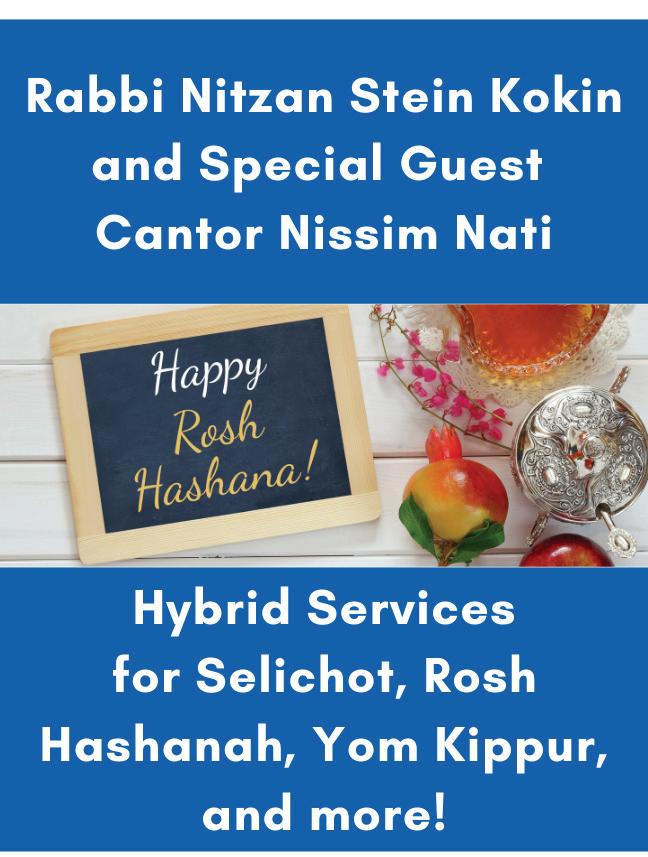
“I abstained because, ultimately, I feel that in the United States, the reality of Jewish life is not one that lends itself to taking a position saying it’s not OK to drive. I found the reasoning and argumentation in the Fine and Leff teshuvah more persuasive,” she said.
Fine and Leff’s paper also affirmed what Congregation Or Tzion Rabbi Andy Green already believed about prioritizing the importance of enabling people to participate in Jewish life and be in community at synagogue, even when that means driving on Shabbat.
According to Jewish law, the challenges to using cars on Shabbat are extensive: One might travel beyond the borders of one’s community, for example, or be tempted to perform repairs, both prohibited on Shabbat. But the biggest obstacle for the cars that most American Jews were driving in 1950 and today is that gas-combustion engines create fire in the course of ignition.
The rise of the electric car offers a widely accessible way to drive without creating fire. Concerns about traveling too far or needing repairs still apply, write the authors of the paper making the case for electric cars on Shabbat, but by sticking close to home and driving only for Shabbat-related reasons,
Jews can use electric cars without violating Shabbat.
Green agreed that removing the risk of violating the prohibition on transferring flame on Shabbat is preferable.
“I personally bought an electric car and when I drive it on Shabbat, I feel that it is less problematic,” he said.
The teshuvot was approved by the com mittee on June 19, but wasn’t published publicly until July 26. JN
all your heart and all your soul.’
The obvious question on this verse is that ‘this day.’ In fact, is not the day that G-d has commanded us to observe the Torah; that day was at Sinai forty years prior!
into everyday living.
he Wall Street Journal and The Atlantic both ran features last month about church attendance dropping nationwide. They each offered sociological explanations of this decline. However, most of these sociological reasons apply to baseball games and attendance at MLB games is up dramatically. I wonder if perhaps religious engagement has an issue that comes more to the core of how we relate to the religious and spiritual aspects of our lives.
Forty years after the giving of the Torah at Sinai, the Children of Israel are east of the Jordan, in the Moabite plains, and about to experience two cataclysmic events: the passing of Moses and the entry to the Land of Israel. The Torah states (26:16) ‘This day, HaShem, your G-d, commands you to perform these decrees and the statutes; and you shall observe and perform them with
TRabbi Naftali Tzvi Yehuda Berlin, 19th century Lithuanian commentator, known as the Netziv, cites Rashi, who comments that the verse is teaching us that each day our perspective of the Torah and our role in observing it should be new in our eyes like the day we received it, and therefore it is ‘this day’ that we received the Torah. Netziv does not accept Rashi’s interpretation as the simple understanding of the verse and instead offers context to this verse. The covenant of Sinai was one in which they received the Torah and informed of its laws. Today, a new covenant is being formed, the covenant of the plains of Moav, and this covenant adds a layer to the covenant of Sinai. Netziv posits that the additional layer is one in which the Children of Israel become an active participant in the process of developing the Torah. He translates each word in the verse as an instruction to delve deeply into the Torah and apply its timeless concepts, its deep and hidden meanings,
I would like to suggest that we synthesize the interpretation of the Netziv together with Rashi’s more homiletical interpretation. When we are tasked with being an active part of a process and encouraged to use our G-d given talents to construct and formulate, then each day the Torah is fresh and new and on ‘this day’ where we begin to develop the Torah it both is new to us by virtue of its new applications and feels new to us by virtue of our engagement with it.
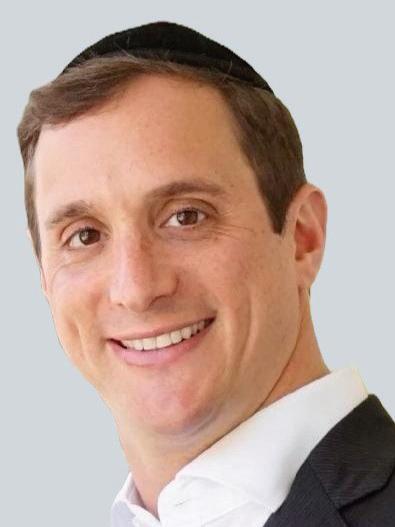
Educational psychologist, Benjamin Bloom, developed a classification to define and distinguish levels of human cognition. The highest level of Bloom’s taxonomy of understanding is to create. Creation is to take our current understanding and to hypothesize, analyze, evaluate, apply and transfer our knowledge into a new idea. When we are creating, we are tuned in and alive, and to our own level emulating the ultimate Creator.
The educational world has long shifted its focus away from cramming facts into the minds of obedient students. Instead, collaboration, active participation and student voice and choice reign supreme in the
classroom. This is how students have the ability to show up each and every day and treat it (almost) like the first day.
It is our religious and spiritual lives that have us as passive synagogue attendees, listening to cantors or sermons without us being actively engaged in the process. Much of observance, by its definition is rote and ritual, and unless we find our own inspiration and meaning, will eventually tire. We are in the midst of the introspective month of Elul and two weeks away from Rosh Hashanah which does invigorate and refresh our outlook for the year. Once a year is simply not enough for us and for our affiliations to matter. We must figure out how we each can feel Rosh Hashanah every day and remain passionate and engaged. May we be blessed with a sweet new year, a year of active participation and engagement; a year that will leave us wanting more for ourselves and our families. JN
We grew up in South Carolina in the late 1960s and ’70s, one of us from the capital city, Columbia, and the other from the small town of Summerton. The foods served on our respective tables were a blend of Southern and Jewish, menus long ago established by our immigrant grandmothers and the African-American women who cooked for their families. Kashrut was observed in our grandmothers’ kitchens, and Southern recipes recrafted for a kosher table mingled quite comfortably with the stuffed cabbage and tzimmes. Favorite family recipes were handed down from generation to generation — l’dor v’dor.
As women pulled by the force of both our region and our religion, we recognize the expressive power of food. In researching and writing our new book “Kugels & Collards,” we have grown far more aware of nuances in Southern Jewish foods and connections spanning cultures, races, pantries and people.
And we have discovered the presence of boundaries — cultural, dietary and physical — that have existed historically and, in some instances, remain today. As Marcie Cohen Ferris writes in the book’s foreword, “Southern Jews revealed who they were and what they believed through the foods they ate — and did not eat — in a region where treyfe (nonkosher) pork, shellfish and wild game were at the center of local cuisine.”
In one of the stories in our book, Aaron and Eli Hyman, owners of the acclaimed seafood restaurant Hyman’s in Charleston, share their memory of catching blue crabs on Sullivan’s Island. Aaron recalls, “We were not allowed to bring the crabs in the beach house, which had a kosher kitchen, but we steamed them and ate them outside out of respect for our great grandmother.”
The diversity of ingredients found in our favorite meals reflects the contributions of individuals underrepresented in or absent from earlier accounts of Southern
Jewish cuisine. What we consider “typical Southern fare” reveals the culinary legacy of Africans brought against their will to the American South centuries ago. On many Southern Jewish tables, it is not unusual to have African-American staples such as collard greens, black-eyed peas and rice alongside European Jewish dishes like brisket, tzimmes and kugel. These meals made their way into the homes of our immigrant grandparents through generations of Black South Carolinians working in traditional Jewish kitchens.
One of these women is Charlestonian Annie Gailliard, whose recipe for okra gumbo we share in “Kugels & Collards.”
Like many great cooks, Annie cooked by taste and passed her recipe verbally down to her employers, the Firetags, Lyssa’s grandparents. Annie and her husband, Walter Gailliard, and their children shared a backyard in Charleston with the Firetags, for whom she began working in 1933.
For the Firetag family, she made the okra dish kosher, which meant no bacon or bacon grease. Lyssa in turn has given the recipe a Jewish touch, with a dollop of shmaltz and olive oil, served with the Jewish grain dish called kasha varnishkes rather than white rice.
Annie died in 2003 at the age of 99, and Lyssa attended her funeral with her mother and other family members. Annie’s is one of many beloved “family” recipes created by skilled Black cooks.
In our own Southern homes, and certainly through the process of writing “Kugels & Collards,” we have come to appreciate how food marks time and place, season and generation, tragedy and trauma, milestones and memory. JN
this article
reflect the views of JTA or its parent company, 70 Faces Media.
should be a maximum of 200 words. They may be edited for space and clarity. Unsigned letters will not be published. Letters and op-ed submissions should be sent to editor@jewishaz.com
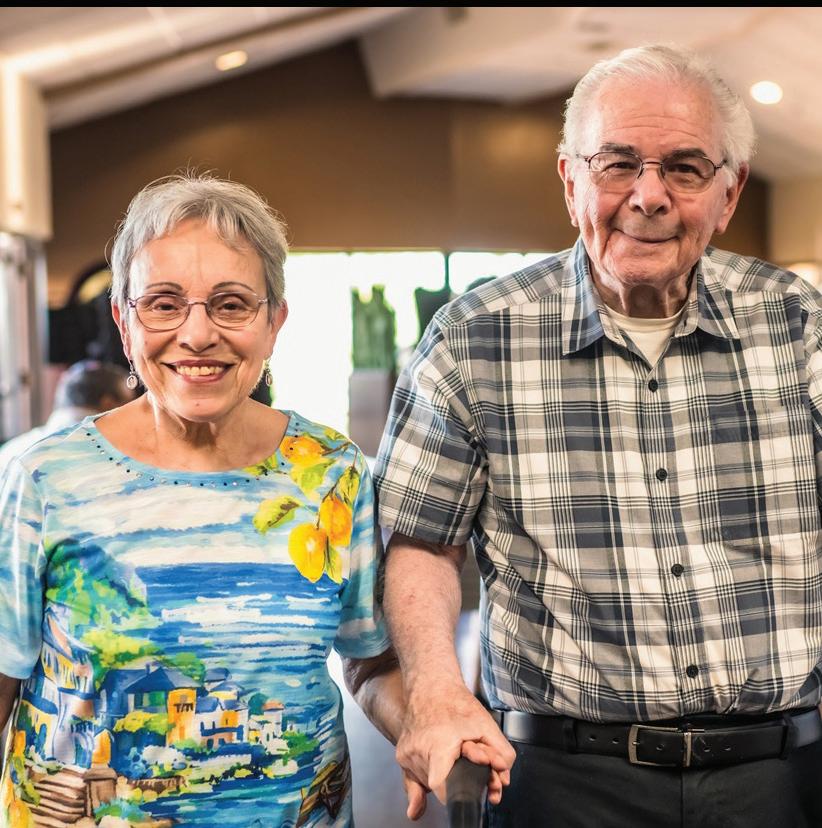
On May 28, 1944, Esther Basch’s 16th birthday, she stepped off the train that arrived at Auschwitz concentration camp. Her father, an Orthodox rabbi, was sent one way, she and her mother another. Then, she was forced from her mother’s side and ordered to go to the right while her mother went to the left. Esther never saw either parent again.
After surviving the concentration camp, working in ammunition factories, walking in a death march and crossing paths with the infamous Nazi doctor Josef Mengele, she was liberated by American soldiers on April 14, 1945.

“They told us to go into town and take whatever we wanted,” said Basch.
She found a jar of honey and ate her fill but because she was suffering from malnutrition, her body could not process so much of the sweet substance and
she became ill. The experience also gave her a nickname, “The Honey Girl of Auschwitz.”
“The Honey Girl” will be the title of the documentary that she and her daughter, Rachel Turet, are making.
“I didn’t want to see another film with skeletons and chimneys,” said Turet. “I realized that is not my mother’s story at all. My mother’s story is about using the tools of love and forgiveness to live a happy life.”
Basch will tell her story at an event hosted by Chabad of the East Valley on Wednesday, Sept. 6 at Chandler Center for the Arts.
Basch started sharing her story after Steven Spielberg’s USC Shoah Foundation, the nonprofit organization dedicated to making audio-visual interviews with survivors and witnesses of the Holocaust and other genocides, taped
an interview with her and her husband, whom she met in a displaced persons camp.
“My husband and I made a tape and then this woman (the interviewer) asked me, ‘How do you feel about the Germans today?’ And my answer was, ‘I cannot forget the horror they put me through, but I can forgive because if I don’t forgive, if I hold a grudge, I only hurt myself,’” said Basch.
The interviewer hugged her, telling Basch that she was the first Holocaust survivor to answer this question the way she did. “I don’t even have a picture of my parents. Nothing. But they taught me to be good,” said Basch. “Love all people, no matter their race or religion. Love God very much. And this is how I live my life — thinking positive, believing in God — and I have a happy life.”
Basch, 95, moved from Phoenix three
years ago, where she lived since 1975, to live with her daughter in Prescott. The two travel around the state and the country, so that Basch can share her story, educate others and raise interest in the documentary.
“Mom and I want to teach and reach as many people as we can so that, possibly, this will never happen again,” said Turet. “You have no idea how many people are shocked at the reality of what went on. You read about the Holocaust, and know six million Jews died, but you can’t really put that in perspective. It’s too massive and almost unbelievable.”

At first, it was very difficult for Basch to share her experiences.
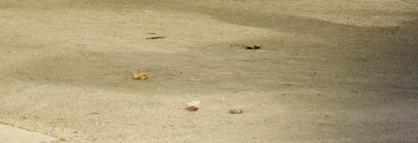
“After Steven Spielberg made the movie (her USC Shoah interview), I kind of opened up and was able to talk about it and the more I talk about it, the better I feel,” she said. “I feel like a burden is off my shoulder when I speak and I see how people care, and that makes me feel very good. Rarely I have nightmares now.”
Turet remembers the nightmares and realized her family was not like others at an early age. Her parents didn’t talk about what they had been through but if they saw a man in uniform, they would hunker down or if there was an unexpected knock at the door, they would look terrified.
“So, what I took away from that and from the way kids at school reacted to me being Jewish, I thought for sure there was something basically wrong with being Jewish,” she said. “Otherwise, why would everybody hate us? Why, why would they punish us? I thought being Jewish was
actually a punishment.”
Turet, a writer, attempted to write down her mother’s story but about eight pages in, she realized she couldn’t do it; it was too personal. So, after several people suggested a documentary, she finally considered the idea.
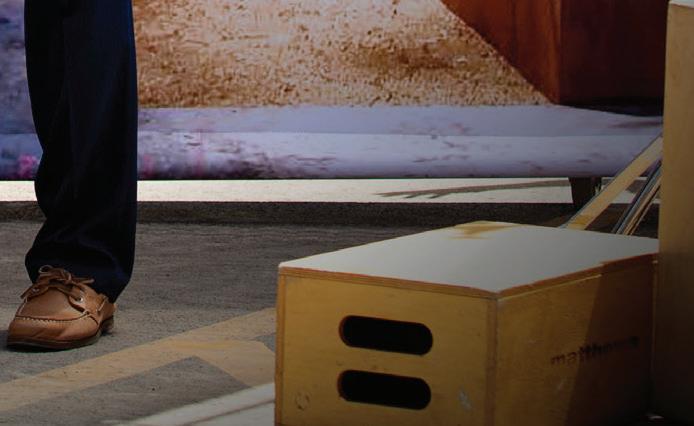
“I realized that mom’s story was different. It was more of a love story,” she said.
Mother and daughter are in the postproduction phase of the documentary and would like to raise about $40,000 more to finish the film and submit it to festivals. Everyone who has worked on the project so far — most of whom are not Jewish — has donated their time with the agreement that if it makes money, they will split the proceeds.
Turet says that they intend to donate their portion to education.
“Lately, we’ve been spending so much money on trips that maybe I’ll take a couple of dollars,” admitted Basch. “But I definitely want to give it to education.”

Turet said that every time they come to Phoenix to give a talk, it costs them $50 in gas.
“A lot of our out-of-town trips are through Chabad,” she said. “Chabad really does treat us like royalty.”
Turet also said that her mother is a celebrity in Prescott. “Every time we go somewhere, somebody is like, ‘Esther!’ She’s quite well known in this town.”
“I wish I could remember everybody — but it seems like everybody remembers me,” said Basch.


“Yeah, I call myself chopped liver,” joked Turet.
She said that during presentations, she puts a placard in front of her with her name on it. One time, she put “chopped liver” on the back and accidentally turned that part of the card to face the audience. She hadn’t realized it until they started, and the audience began to laugh. “Humor is our salve,” she said. Their favorite audience is high school students, Turet said.
“You can see the impact. You’re telling people who are 14 to 16 that at the age of 16 my mother got up on her birthday at Auschwitz and never saw her parents again.”
Recently, they were visiting Turet’s daughter, who lives in New York, and decided to do some speaking engage-
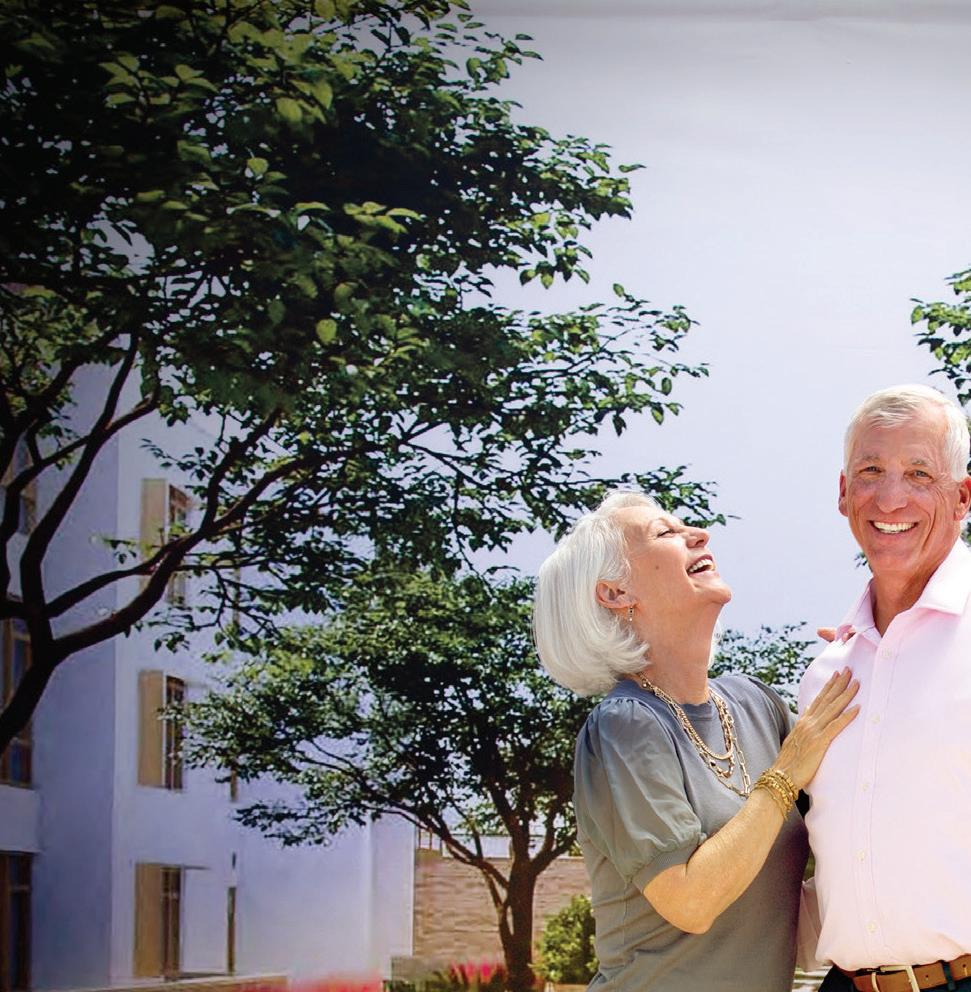
ments because they are rarely on the East Coast. One of these engagements was at Turet’s grandson’s high school.
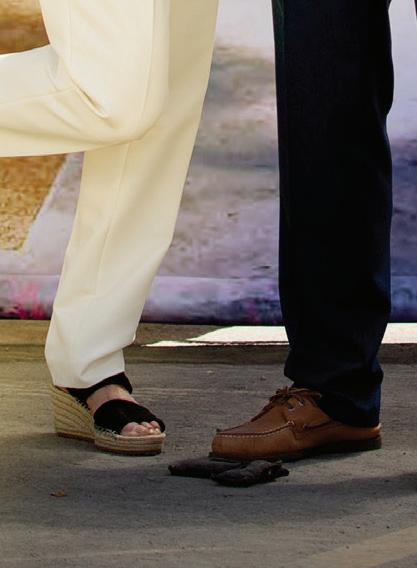
He is in the documentary and had an interesting observation to share with the women when they returned to Arizona.

Turet explained that her grandson hates standing around listening to racial slurs from classmates. “He said, ‘Not once since your talk have I heard one, maybe it’s still going on, but it’s not going on around me,’” she said. “And he added, ‘You have no idea how many kids have come over and thanked me profusely for bringing my great-grandmother. It’s rewarding.’”
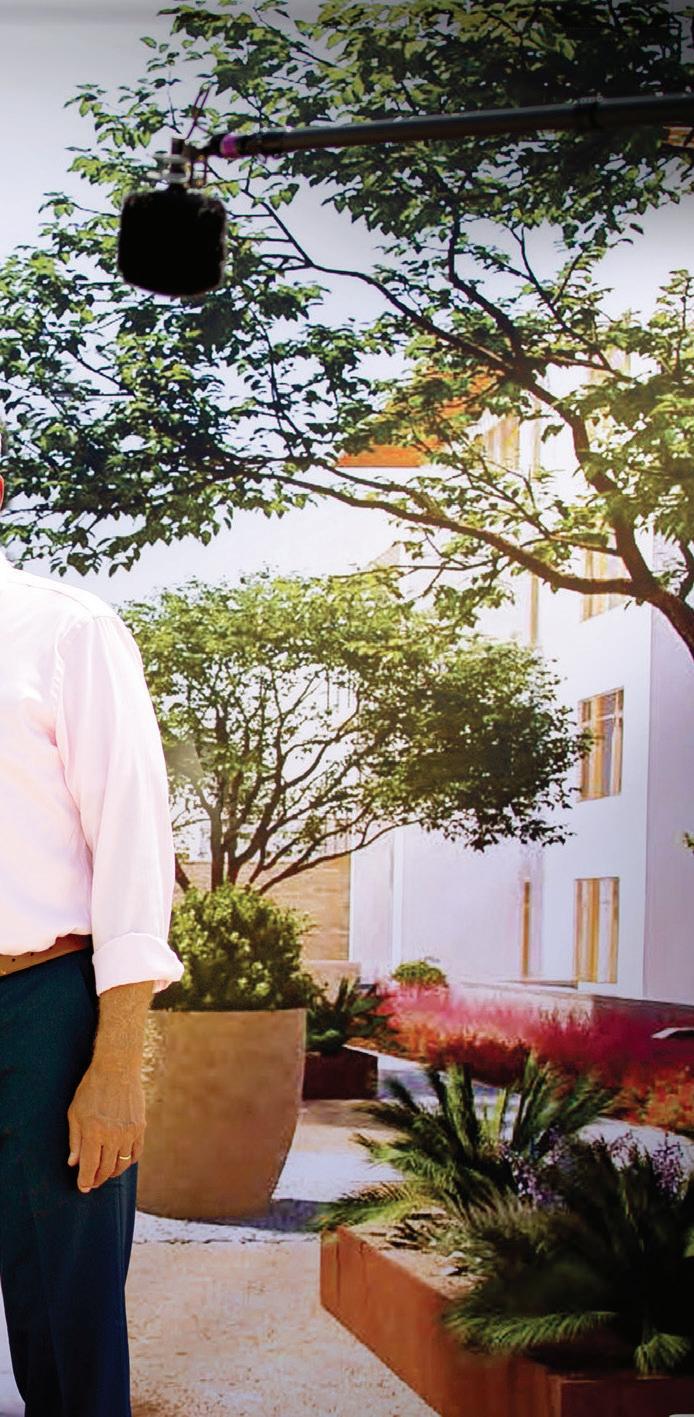
Basch said it is rewarding for her too. “I speak to the high school students, and they all write me such nice thank-you notes telling me, ‘We will make sure it will never happen again.’ Oh, that warms my heart.”
And when asked if she minds traveling, she said, “When I think of what I’m going to accomplish when I’m traveling, I just forget about pain or tiredness. I’m just going on — like a young woman of 95.” JN
For more information on the documentary, visit honeygirlfilms.org. For information on “The Honey Girl of Auschwitz – Esther Basch’’ event on Sept. 6 (Jewish News is a sponsor), visit chabadcenter.com/event.
It’s lights, camera, and all the action at Inspirata Pointe, the new Independent Living expansion project at Royal Oaks! Our spectacular amenities, including a dog park and three beautiful restaurants, immerse you in a luxury lifestyle built on food, fun, and freedom. Now, with even more choice and opportunity, you’re all cued up to live on your terms and be whoever you want to be – yogi, card shark, dog lover, sports fanatic, you name it. It’s your show.
"I CANNOT FORGET THE HORROR THEY PUT ME THROUGH, BUT I CAN FORGIVE BECAUSE IF I DON’T FORGIVE, IF I HOLD A GRUDGE, I ONLY HURT MYSELF."
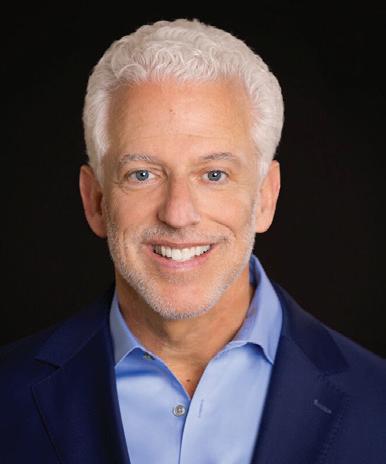
As I get older it is harder and harder to believe that we are clicking off the years so quickly. It reminds me of the character that Adam Sandler plays in the movie “Click,” where he receives a universal remote that enables him to control time. As the years add up for us all, our journey through life brings us both wisdom and challenges, the challenges I would like to address today are specific to health. The risk of stroke emerges as a significant concern, particularly as we advance in age. Understanding the intricacies of this risk and equipping ourselves with the knowledge to prevent and recognize strokes is crucial. In this month’s column, we delve into the average risk of stroke by age, prevention, signs to look for, the need for quick response and the essential steps to take in safeguarding our health.
It’s no secret that the passage of time influences our bodies in myriad ways. When it comes to a stroke, the statistics tell a compelling story. Research reveals that the average 10-year probability of experiencing a stroke increases steadily with age. The journey begins at a relatively modest 5% for those aged 55-59 and escalates to a concerning 20% or more for individuals aged 80-84, irrespective of gender.
Acknowledging the heightened risk of stroke in our later years should not evoke fear but rather it should empower us to take proactive measures. Prevention lies within our grasp, predominantly through lifestyle choices that we make each day. A balanced diet, regular exercise and managing stress can work together to significantly reduce the risk of stroke. By consciously incorporating whole grains, lean proteins and an abundance of fruits and vegetables into our diets, we can support our cardiovascular health. Pairing this with regular physical activity can bolster our cardiovascular system, enhancing blood flow and reducing the risk of
blood clots that often precede strokes. Participating in social activities where you are around people that are engaging and friendly will help to reduce stress.
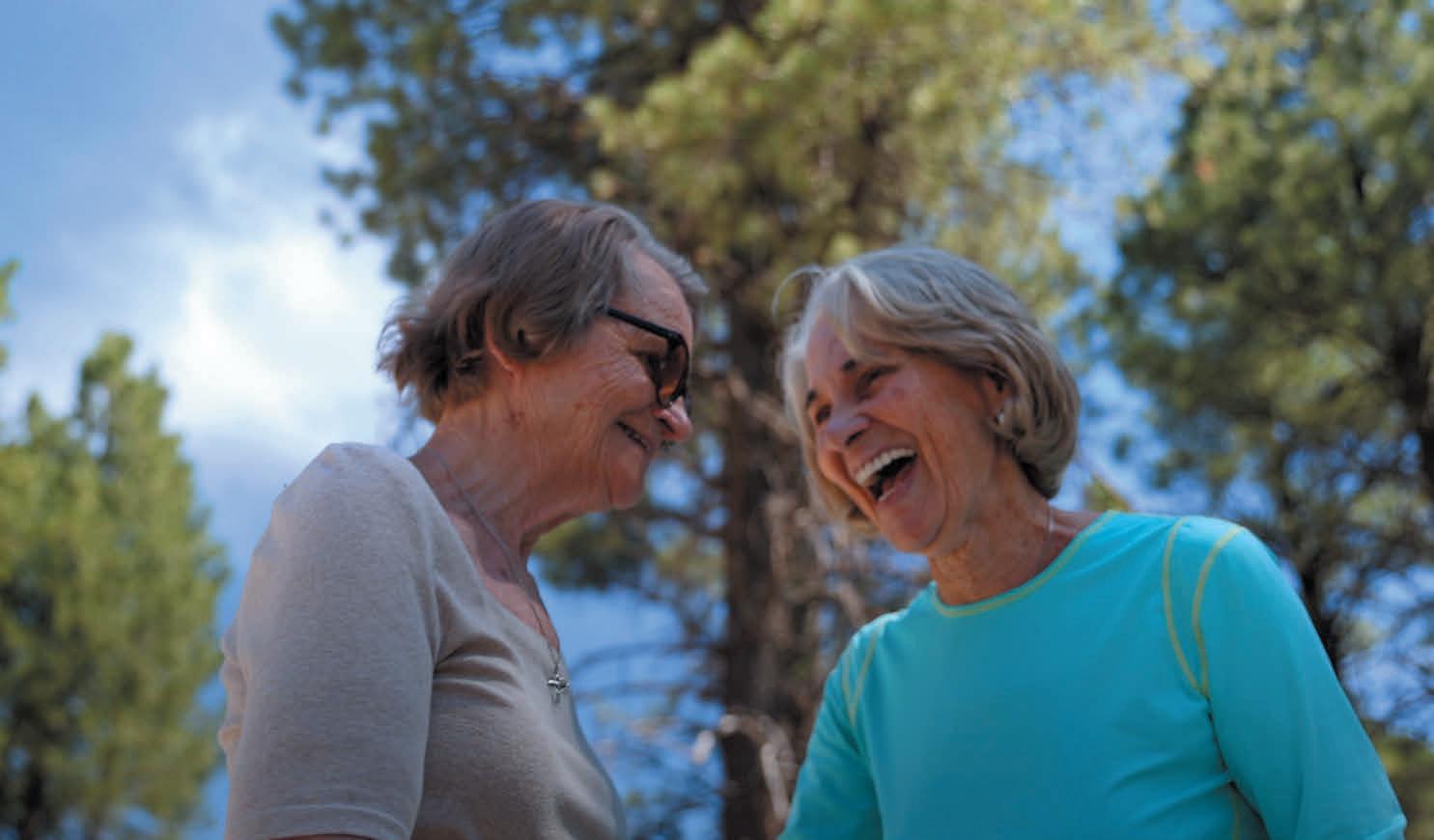
Being prepared to recognize the signs of a stroke is equally pivotal. F.A.S.T is an acronym that serves as a valuable mnemonic for spotting potential strokes:
F: Face drooping

A: Arm weakness
S: Speech difficulty
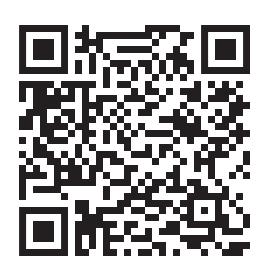
T: Time to call emergency services
If you or someone around you exhibits any of these symptoms, it’s crucial to call emergency services immediately. Every minute counts in stroke care and seeking medical attention promptly can make a significant difference in the outcome and quality of life for the person who has experienced a stroke.
In the event you suspect someone is having a stroke, remaining calm and acting swiftly can be lifesaving. Call for medical assistance immediately. While waiting for help to arrive, keep the person comfortable and avoid giving them anything to eat or drink. Note the time when symptoms began, as this information is critical for medical professionals to determine appropriate treatment.
If you happen to live in Phoenix, Barrow Neurological Institute is home to the first mobile stroke unit in the country to operate around the clock in a city with a population greater than 1 million. In 2017, they launched the Barrow Emergency Stroke Treatment Unit in partnership with the Phoenix Fire Department. Their 911 dispatchers deploy the unit whenever they receive a call about a possible stroke within the unit’s response radius. The mobile stroke unit is staffed with a trained stroke team and functions like an emergency room on wheels. It is equipped with a portable lab, computed tomography (CT) scanner and clot-dissolving drugs. The stroke team connects with an on-call vascular neurologist via telemedicine and can begin treatment on scene.

Why time is of the essence
Strokes are a medical emergency that
require immediate treatment to minimize brain damage and improve the chances of a positive outcome. Strokes occur when the blood supply to a part of the brain is interrupted or reduced, leading to brain cell damage and potential long-term disabilities or even death.
There are two main types of strokes: ischemic and hemorrhagic. Ischemic strokes occur when a blood clot blocks an artery supplying blood to the brain, while hemorrhagic strokes occur when a blood vessel in the brain ruptures and causes bleeding. In both cases, brain cells begin to die within minutes due to the lack of oxygen and nutrients from the blood supply.
The urgency of seeking medical attention quickly after the onset of stroke symptoms is crucial for the following reasons:
Minimize brain damage: Time is critical in preserving brain tissue. The longer blood flow is interrupted, the more brain cells die. Rapid treatment can potentially limit the extent of brain damage and prevent permanent disabilities.
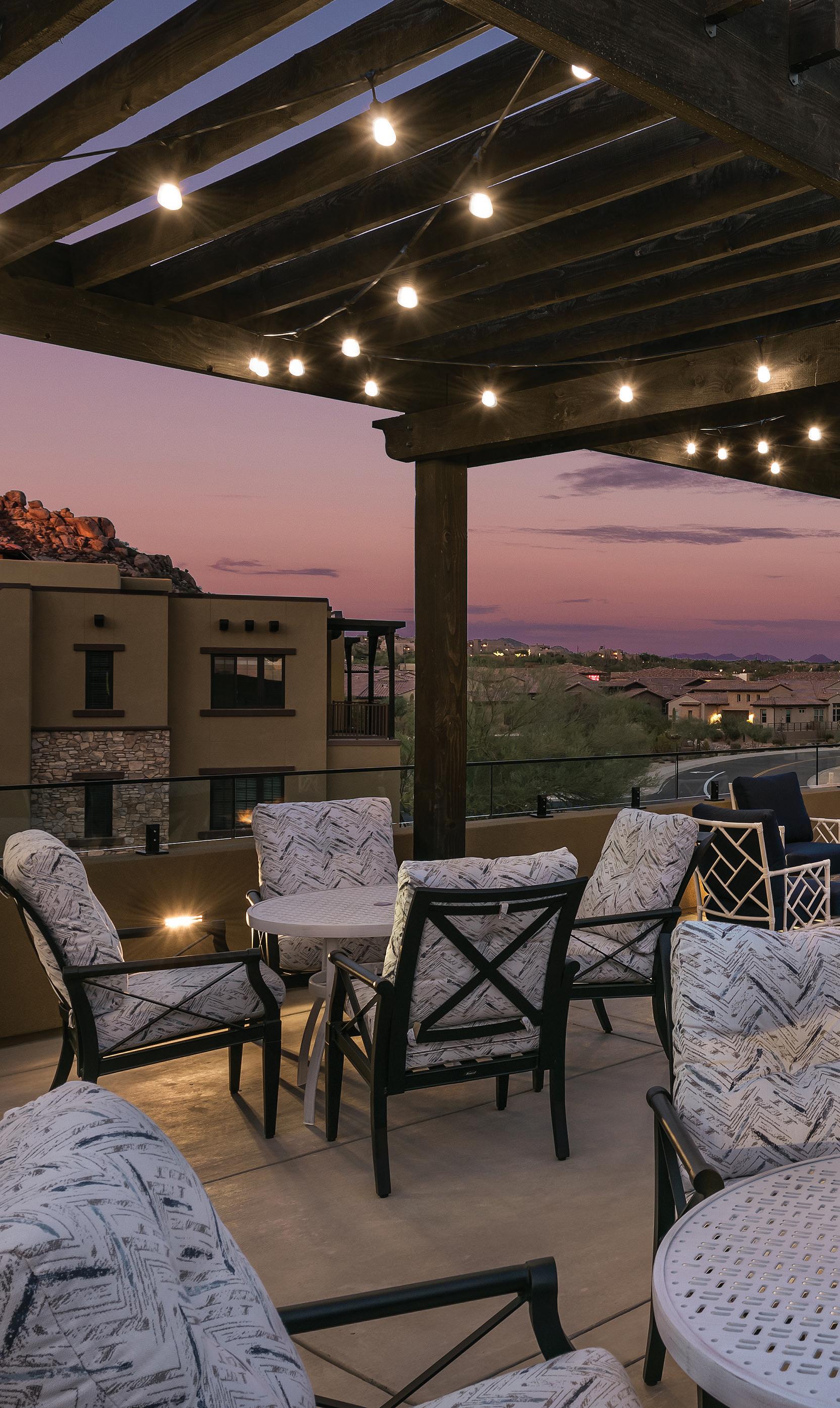
Administer clot-busting medication: In the case of an ischemic stroke, a medication called tissue plasminogen activator (tPA) can be administered to dissolve the clot and restore blood flow. However, tPA needs to be given within a narrow window of time (usually within 4.5 hours of symptom onset) to be effective and safe.
Remove clots: In some cases, particularly large clots may require mechanical removal (thrombectomy). This procedure is also time-sensitive and is most effective when performed soon after the stroke.
Identify underlying causes: Quick medical attention allows healthcare professionals to diagnose the type and cause of the stroke, which is essential for appropriate treatment and preventing future strokes.
Reduce complications: Strokes can lead to various complications, such as swelling of the brain (cerebral edema) and increased pressure inside the skull. Rapid treatment can help manage these
complications more effectively.
Empowering prevention
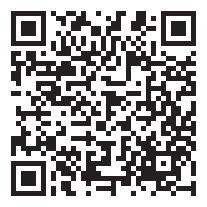
8 tips to safeguard against stroke:
Healthy eating: Prioritize a diet rich in whole foods, lean proteins and ample fruits and vegetables.
Stay active: Regular physical activity, even brisk walking, can significantly reduce stroke risk.
Manage blood pressure: Keep a close eye on blood pressure levels and work with your healthcare provider to manage it effectively.
Maintain a healthy weight: Strive for a healthy body weight to support your cardiovascular system.
Quit smoking: Smoking greatly increases stroke risk; quitting can lead to substantial benefits.
Moderate alcohol consumption: If you drink, do so in moderation as excessive alcohol can contribute to stroke risk.
Manage diabetes: Keep blood sugar levels in check through a combination of healthy eating, exercise and medication as prescribed.
Regular check-ups: Schedule routine medical check-ups to monitor your overall health and catch any potential issues early.
Navigating the journey of aging requires a blend of knowledge, preparedness and proactive choices. As we step into the future, let us empower ourselves and our loved ones with the tools needed to mitigate the risk of strokes. By embracing a healthy lifestyle and recognizing the signs, we can stride confidently towards our later years, knowing that we have taken meaningful steps to safeguard our well-being and the well-being of our loved ones. JN
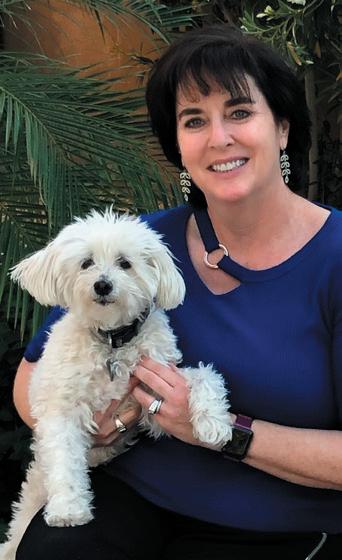
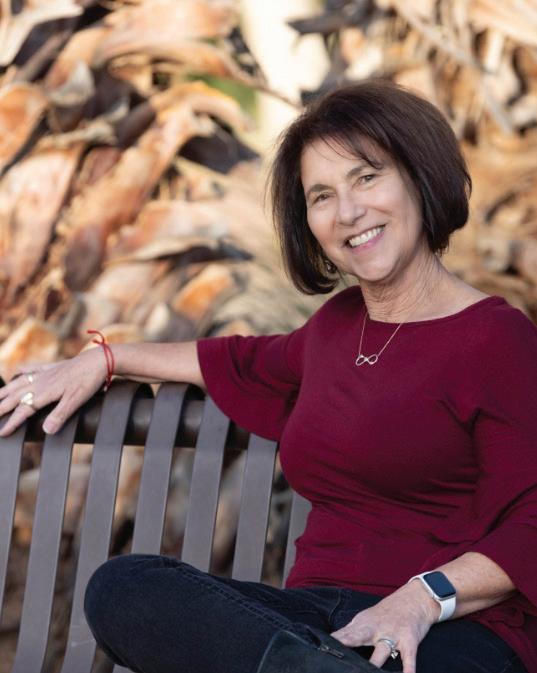
The role of a doula is traditionally associated with birth. Anita Kellman guides people at the other end of their journeys, as a certified endof-life doula.
Kellman, 66, provides physical, emotional and spiritual support to patients and their families, whether that means running errands, facilitating conversations or sitting vigil.
Caring for others and giving them respect and dignity is a natural extension of her Jewish values, said Kellman, a longtime member of Tucson’s Congregation Chofetz Chayim.
As a medical professional for more than 40 years, including 18 years as a clinical liaison in an oncologist’s office, she helped people face the end of life long before she had an official name for the role.
“I held the hands (both literally and figuratively) of thousands of patients and families who were going through cancer diagnosis and treatment,” Kellman says.
She created Beat Cancer Boot Camp, a fitness-based support group, to help patients, survivors and those who love them stay strong. She ran the group for almost two decades. She also has been a hospice volunteer.
But it was her personal experience with grief that inspired her to train as an endof-life doula.
Despite all her knowledge and experience, when her mother was in hospice, “I still kind of froze,” Kellman said. “I couldn’t think straight. I realized there’s a need for someone to guide people.”
One of her main goals is to make talking about the end of life easier.
Some clients meet with her for advance planning. Beyond funeral arrangements, there can be much to prepare, from organizing insurance papers to designating a friend or family member to make medical or financial decisions.
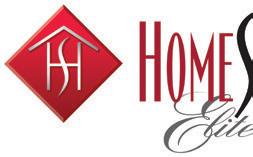

Such planning can be “the ultimate form of love, helping your family members, having everything all taken care of
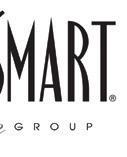
so they don’t have to worry about making decisions,” she said.
Sometimes Kellman’s job is to simply sit quietly with a patient so they are not alone. But often, people facing the end of life are eager to share their history. While family members may have heard their stories before, “I’m hearing it for the first time, with open ears,” she said. She can write or videotape a patient’s stories as a legacy for future generations. Another option is to prewrite birthday cards for their loved ones.
Kellman often uses music and aromatherapy to provide comfort, such as smoothing a patient’s hands with lavender-scented lotion.
It’s the little things that make her work special, she said. She remembered a patient who admired the butterflies on the lanyard that held Kellman’s hospice badge. She gave the woman the lanyard to wear as a necklace and later hung it on the wall where she could see it. “It made her so happy,” Kellman said.
Along with helping patients during their active dying time, Kellman offers bereavement support for families.

For her own physical and emotional well-being, Kellman has several self-care practices, including hiking and meditation. And her greatest joy, she said, comes from spending time with her six grandchildren.
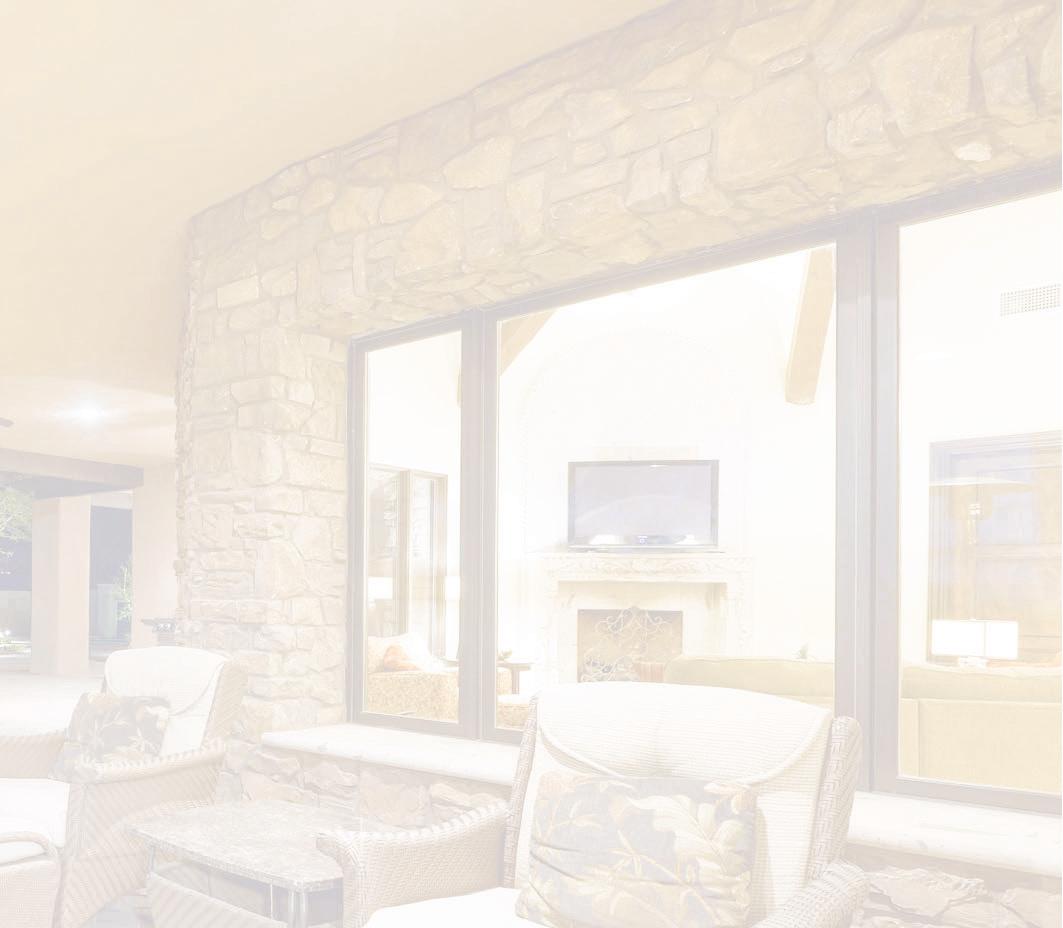
Kellman received her doula certification from the CareDoula School of Accompanying the Dying in 2020 and is a past board member of the National End-of-Life Doula Alliance.
Deanna Cochran, founder of the CareDoula School, said she was “blown away” by Kellman’s compassion, enthusiasm and vision. “She’s amazing,” she said.
Kellman’s longtime friend Marlene
Harris agreed.
“She has a kindness and a caring about her that is perfect for this job,” she said.

Harris and Kellman were pals during their high school days in Skokie, Ilinois, and renewed their friendship after both, coincidentally, ended up in Tucson. Ten years ago, when Harris was treated for stage 4 lung cancer, Kellman was a key member of her support team.
Harris recently told her husband, “If I ever get sick again, I want Anita to be my doula. I don’t want anybody fighting over what’s going to happen to me. It’s all going to be spelled out and Anita is going to be the one to take care of me.” JN For more information, visit anitakellman.com.
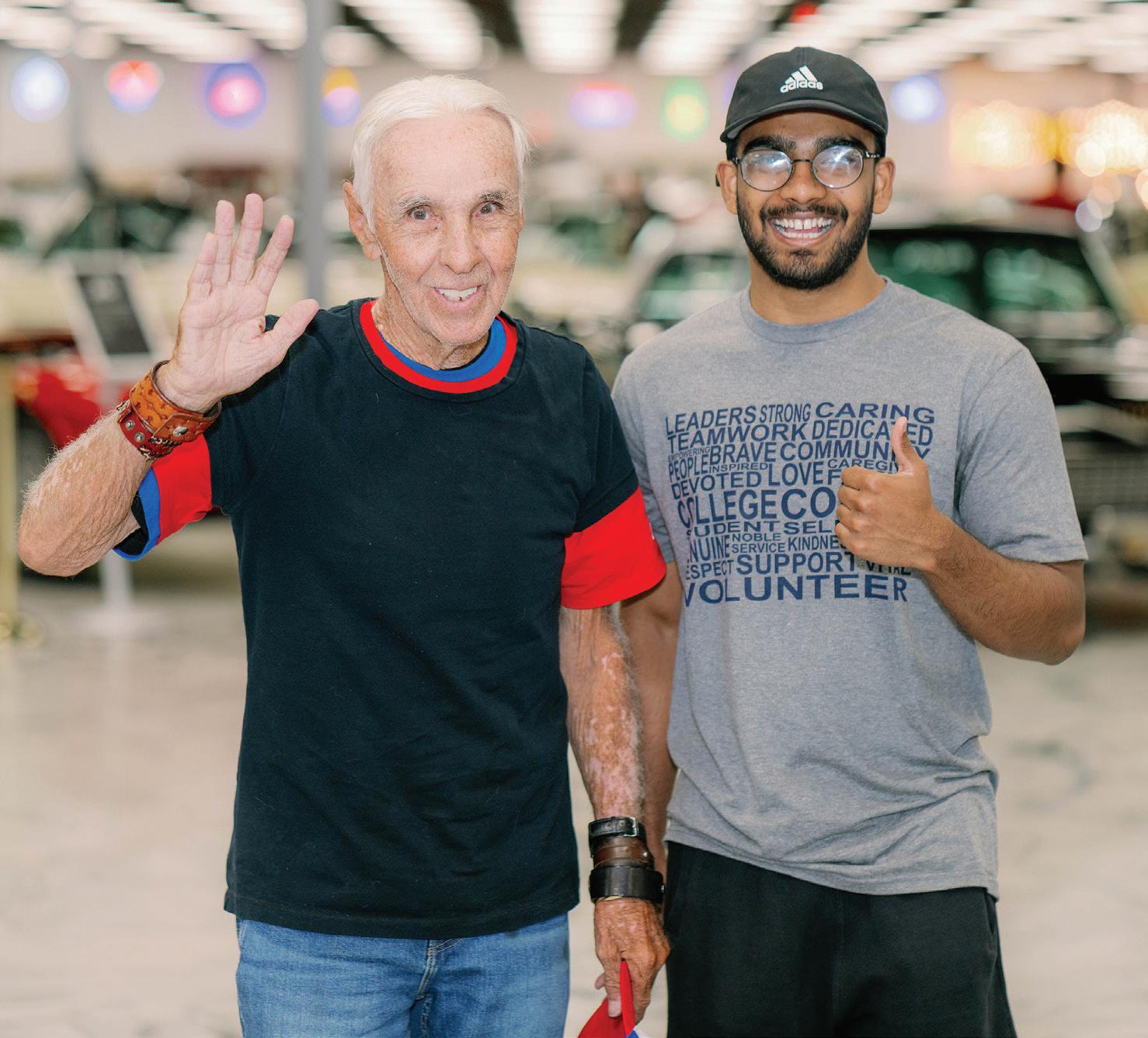
“I HELD THE HANDS (BOTH LITERALLY AND FIGURATIVELY) OF THOUSANDS OF PATIENTS AND FAMILIES WHO WERE GOING THROUGH CANCER DIAGNOSIS AND TREATMENT.”
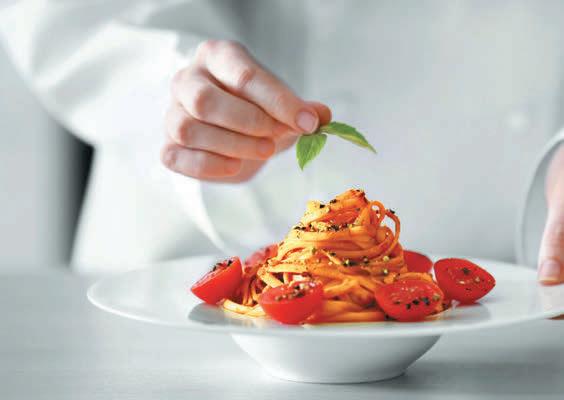
From “Schindler’s List” to “The Red Sea Diving Resort,” the nonJewish, award-winning actor Ben Kingsley has starred in a number of Holocaust and other Jewish-themed movies.

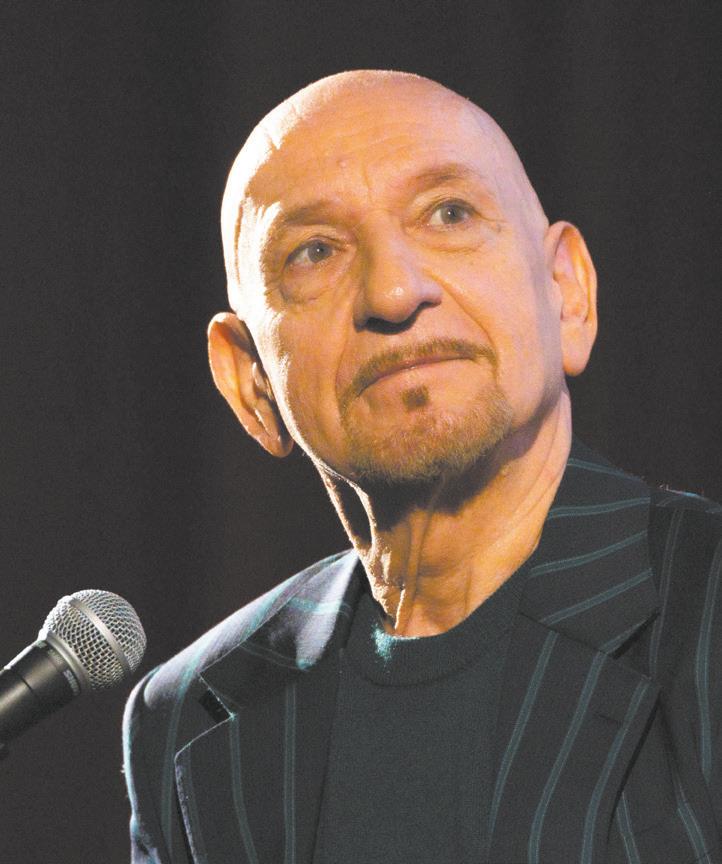
The recurring theme in his career wasn’t an accident, he said in a recent interview. Instead, he said, he picked the roles because his “vigorously antisemitic” grandmother motivated him to want to speak out on the issue of antisemitism.
Talking to Parade magazine earlier this month, Kingsley was asked why he has played so many Jewish characters in film. His British mother is thought to have Jewish ancestry, but “the thread is so fine there’s no real evidence,” he said in a 1994 interview about “Schindler’s List,” in which he plays Oskar Schindler’s helper Itzhak Stern.
He told Parade:
I must answer very candidly, and it’s an answer that disturbs me but it’s the truth. I remember as a schoolboy watching a wonderful television documentary
series, which examined World War II. And as a schoolboy, alone in the house, I watched the liberation of Belsen [a Nazi concentration camp] on film. And I do remember as a young adolescent, I think I was maybe 11 or 12 — this was way after World War II, of course, it was a retrospective — but I think my heart stopped beating for a little while. I went into deep shock as a child.
The disturbing part of this story is that I remember within the same few days having a conversation with my maternal grandmother, who was inexplicably but quite vigorously antisemitic. So, the two impressions came to me almost simultaneously, and as a child it was very difficult for me, impossible for me to counter my grandmother’s outburst, but I think a seed was planted in me that said to me, “One day I will speak.”


Kingsley, who had an Indian father and won an Oscar for portraying Mahatma Gandhi in the 1982 biopic “Gandhi,” has previously said that his grandmother’s antisemitism stemmed from the fact that
a Jewish man abandoned her once she became pregnant.
In an on-screen career dating back to the 1970s, Kingsley has also earned Emmy nominations for playing Otto Frank in a TV miniseries called “Anne Frank: The Whole Story” and for playing Nazi hunter Simon Wiesenthal in a 1989 TV movie called “Murderers Among Us: The Simon Wiesenthal Story.” He played Jewish gangster Meyer Lansky in the acclaimed film “Bugsy” — about the life of Jewish mobster Bugsy Siegel — and an organized crime boss called The Rabbi in the 2006 thriller “Lucky Number Slevin.”
In 2019, he played a Mossad agent in “The Red Sea Diving Resort,” a drama about a 1980s Israeli mission to rescue Ethiopians. He has also played Nazi Adolf Eichmann, in the 2018 drama “Operation Finale.” He said he kept a photo of his real-life friend Elie Wiesel in his pocket while filming that movie.
Before Wiesel’s death in 2016, Kingsley told the Jewish Telegraphic Agency that he had told the best-selling Holocaust
survivor: “The next time I walk onto a film set that is appropriate to your story, I will dedicate my performance to you.”
He said he kept his word: “Every day as promised, I looked at a picture of Elie that I carried in my pocket and said ‘I’m doing this for you,’” he said.
Kingsley’s newest movie, “Jules,” is a sci-fi story about an older man named Milton who befriends an alien who crashlands in his backyard. JN






Many older adults feel comfortable and safe living in their homes surrounded by personal belongings. It provides a sense of security and is essential as individuals grow older. Aging in place offers many benefits, including maintaining independence and a sense of autonomy. However, as seniors age, emotional challenges require understanding and support from families. Offering support can sometimes be tough as we are now helping loved ones navigate obstacles or hurdles that pop up along the way. To effectively support your aging-inplace senior and offer the emotional care they need, do the following:
Help ensure safety through communication and active listening
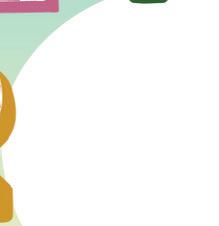



Most people want to be heard and have their feelings validated. Seniors are no different. Being an active and attentive listener that can offer emotional support when needed is critical. Be in frequent contact and encourage your seniors to share their feelings, fears and concerns. Engaging in meaningful conversations can help alleviate feelings of loneliness and isolation, which are common in older individuals. Aging can bring about various
fears and anxieties related to health, finances and mortality. Be empathetic and acknowledge their concerns while offering reassurance and support.

Foster and encourage relationships
Encourage your aging-in-place loved one to be socially and physically active. Loneliness can significantly impact emotional well-being, so it’s crucial to maintain connections with friends, loved ones and the community. If your senior needs assistance with scheduling or travel to stay connected with friends, family and the community, make a plan and see that it happens.

Promote recreational opportunities and provide a sense of community
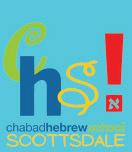
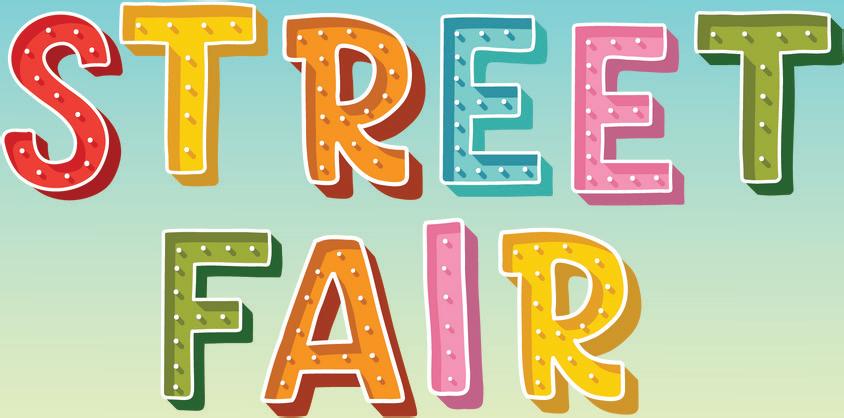




Hobbies are essential at any age but especially for seniors. Help them keep their passion for their hobbies and encourage them to continue doing what they love. Hobbies provide a sense of purpose and fulfillment and can boost emotional wellbeing.
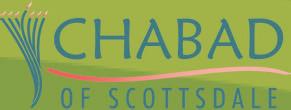



Participatory, fun classes that stimulate the mind and body provide an outlet for artistic expression and foster an understanding of the vital relationship

between creative expressions and quality of life for older adults. The Creative Aging classes at Jewish Family & Children’s Service (JFCS) are offered in-person and via Zoom and include a broad range of arts, such as readers theater, storytelling, music, dance and more.

Respect their independence
While providing support is essential, respecting your senior’s independence is equally important. Don’t make decisions without their input and be sure to have conversations about their hopes and expectations for the future. It will help them have a sense of control over their life. Health care can be a primary concern as individuals age, so be sure to have a conversation about how best to address and handle needs that may arise in the future.
Keep tabs on mental health





Many seniors experience some level of depression, anxiety or withdrawal. Be supportive and understanding. Talk with your loved one and seek professional help if needed.
Emotionally supporting your aging-inplace senior requires patience, empathy
and understanding. As seniors age, their emotional needs evolve and providing proper emotional support becomes increasingly important. The emotional needs of seniors can vary from person to person, but common ones include a need for:

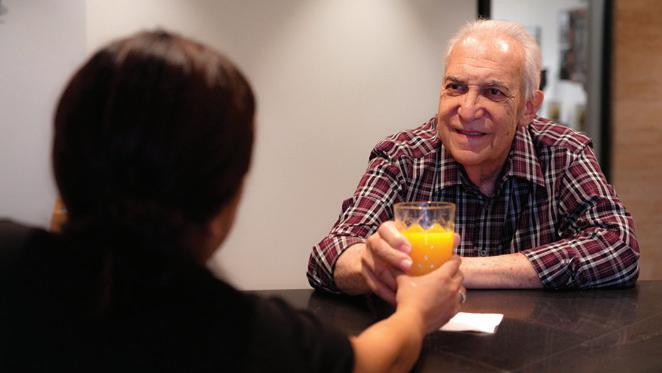
• Social interaction


• Meaningful relationships
• Safety
• Belonging
• Meaning and purpose
• Empathy and validation
• Independence and autonomy
• Privacy
Family members can significantly contribute to aging individuals’ emotional well-being and overall quality of life. And helping them have a sense of security and purpose by being in their own home surrounded by their personal belongings can be a critical part of providing the love and support your senior needs.
Jessica Levin-Bozek, MA, LPC, is director of Adult Older Behavioral Health Services at Jewish Family & Children’s Service. More information about older adult programs is available at jfcsaz.org/ our-services/older-adult-services/.
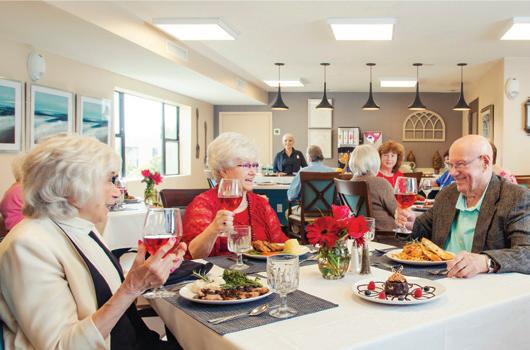
We grew up in Barcelona, Spain. Not exactly your typical Jewish upbringing, and while we loved the beautiful city, it could be difficult and isolating during the Jewish holidays. Nevertheless, we managed to form a tight-knit group each year with our aunt, uncle and cousins who enjoyed the festive Syrian-Lebanese style food our talented mother prepared for us. The main meal itself was amazing, but it was the symbolic foods we ate before the main meal that were our favorites.
Ingredients:





1 1/2 teaspoon salt
1 teaspoon sweet paprika
1/2 teaspoon turmeric
1/4 teaspoon cumin
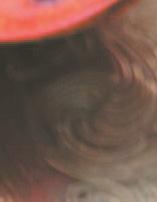
1/8 teaspoon black pepper



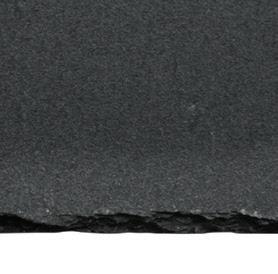
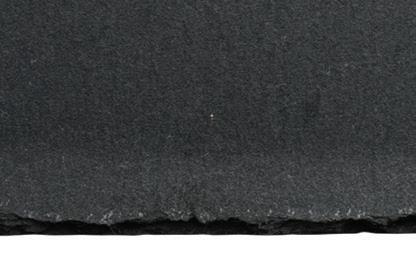
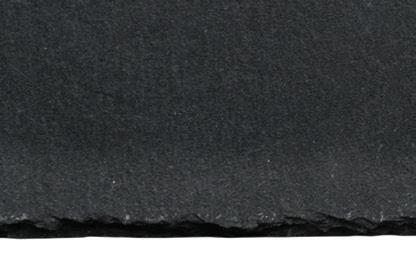



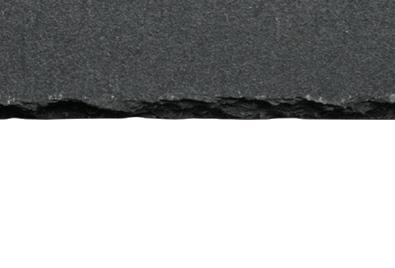
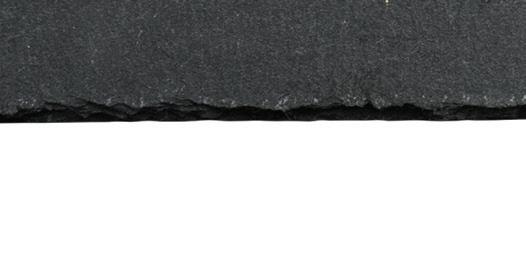
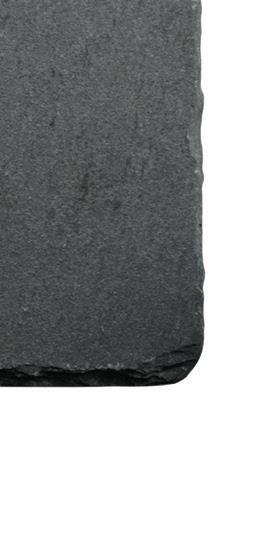
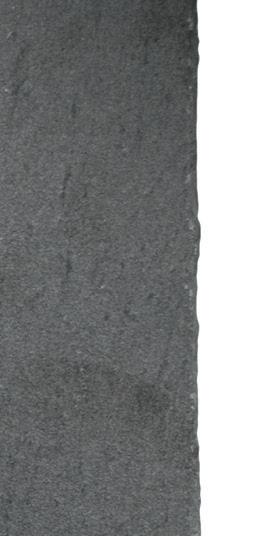



4 tablespoons extra virgin olive oil divided, plus 1 teaspoon
2 medium size onions, diced small
10 dried apricots, quartered
6 dried figs (we used Smyrna), quartered
1/4 cup dried cherries
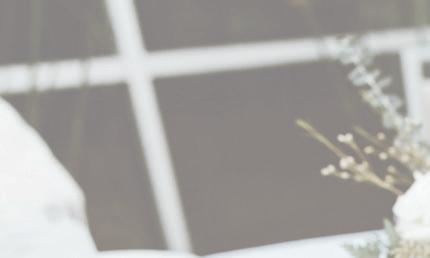
1/4 cups pistachios or pumpkin seeds

1 cup long grain rice (we used Jasmine, but you can use Basmati or whatever you prefer)
1 cup water
1 1/2 teaspoon fresh lemon or orange zest
1 cup pomegranate seeds
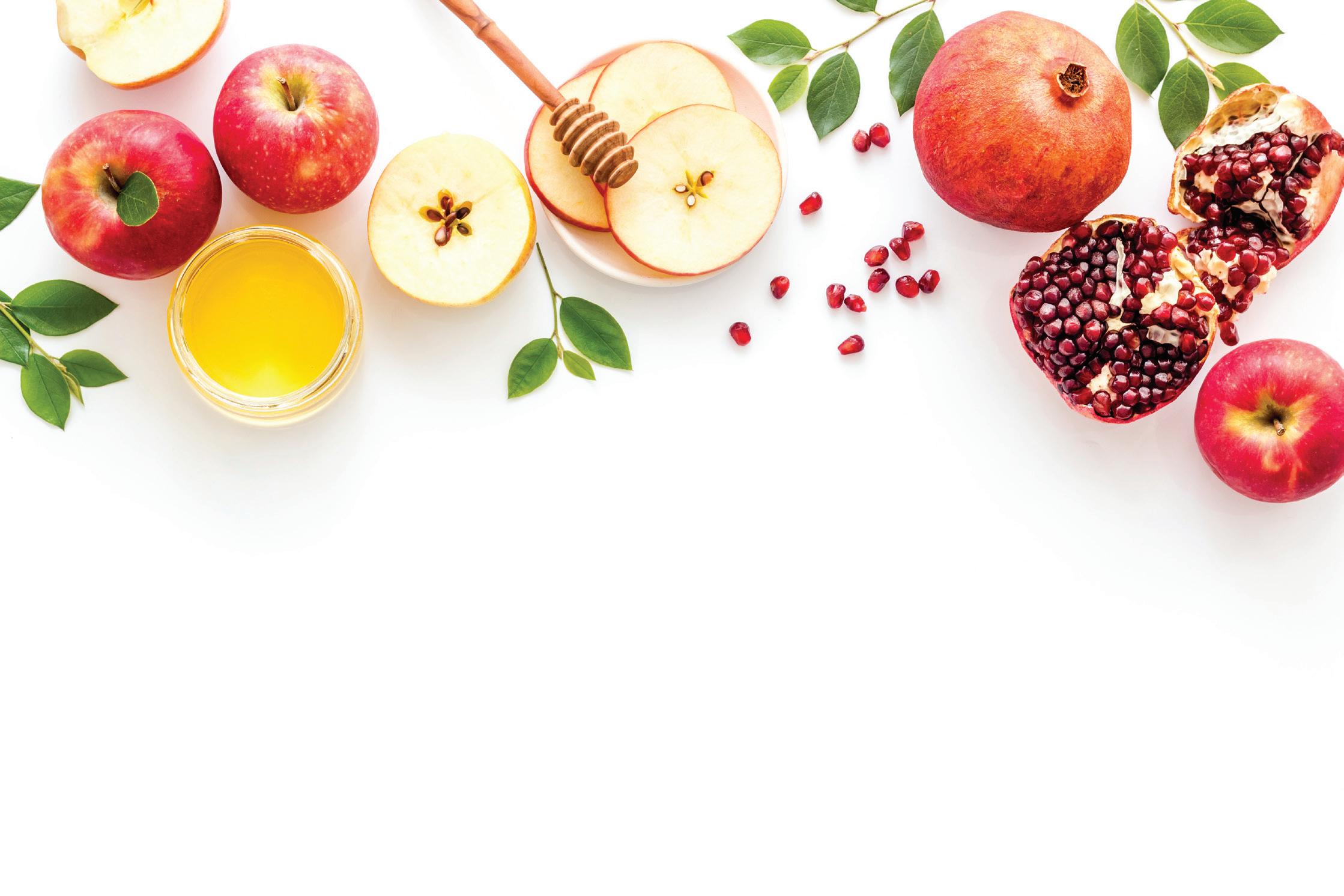
Directions:
Combine salt, sweet paprika, turmeric, cumin and black pepper in a small bowl. Set aside.

Heat 2 tablespoons of olive oil in a deep, non-stick skillet with a lid. Add rice and spices and stir well.
Cook over medium heat for about 3-4 minutes, stirring constantly and making sure the rice gets well coated with the oil and the spices.
Add 1 cup of water. Bring to a boil, cover
Our mom would make zucchini and spinach frittatas and cold leek soup, and we would enjoy sweet dates, apples with sugar, pomegranates with rose water and the head of a fish or lamb, a tradition for Sephardic families.
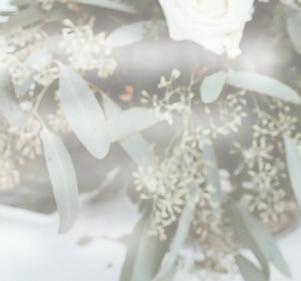
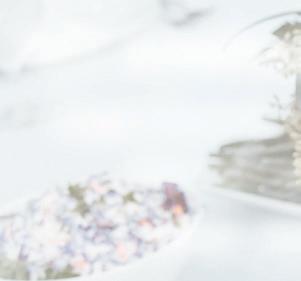
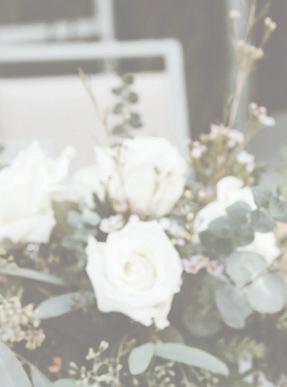
The Syrian Lebanese cooking we grew up eating didn’t usually include sweet flavors in savory dishes during the year. But for Rosh Hashanah, our mom would make an exception with her delicious sweet carrot and raisin rice. It was always a big hit and we brought the recipe with
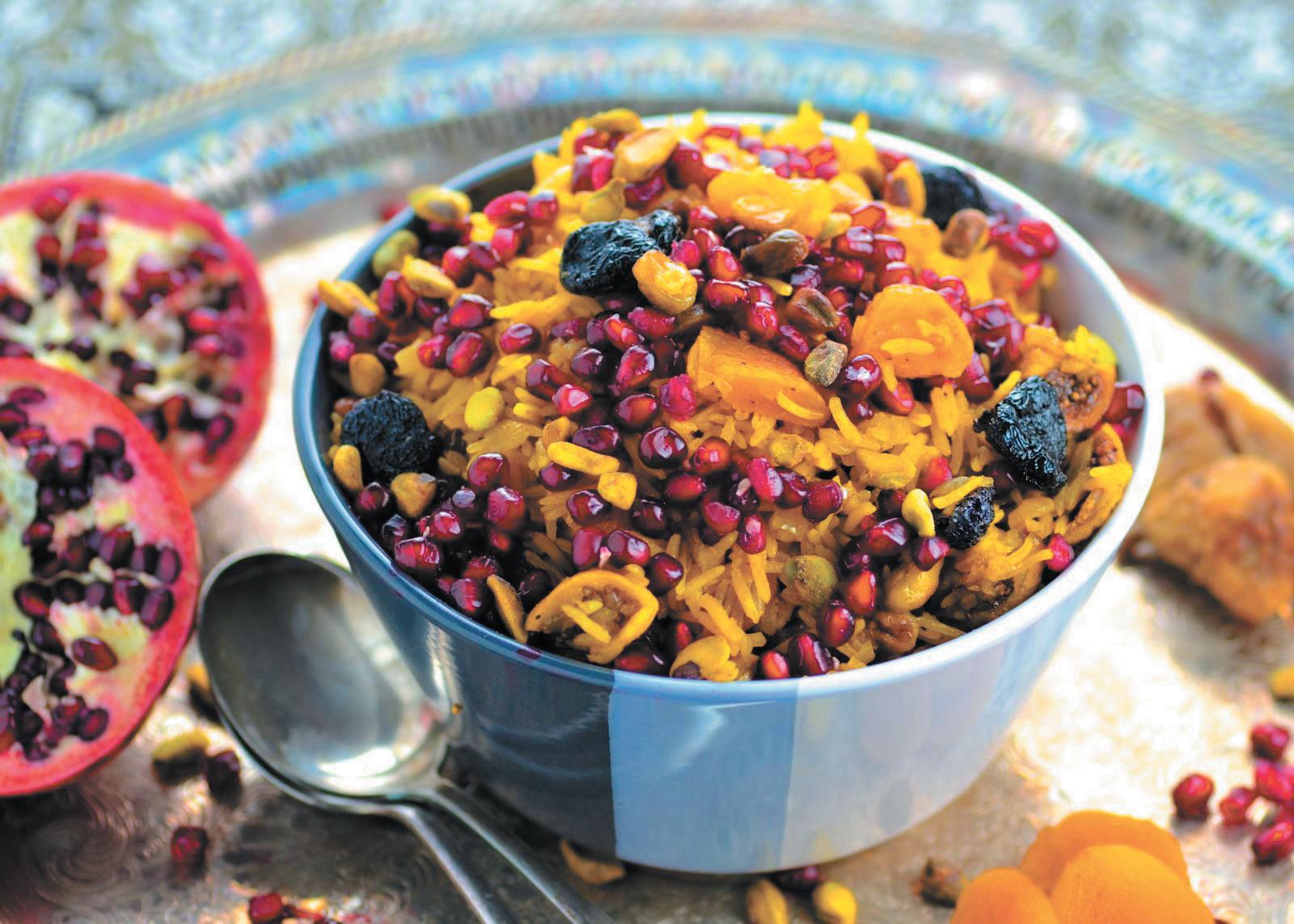
us when we moved to the United States. This year our parents will join us for the holidays and so we decided to change things up a little and make our mom a surprise rice dish. The first night of Rosh Hashanah we will make her traditional carrot and raisin rice. And the second night, we will serve this new sweet fragrant rice that includes some of our mom’s favorite spices and dried fruit. We think she will be proud of keeping the old traditions, and making some new ones as well.
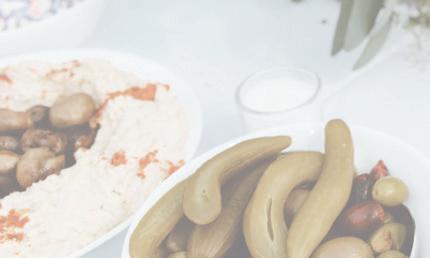


and reduce heat to low. Cook for 20 minutes, remove from heat and let it sit for 15 minutes covered.
In the meantime, heat the remaining 2 tablespoons of olive oil in a non-stick skillet.
Add onions and cook over medium heat for about 20 minutes stirring frequently, adding water 1 tablespoon at a time if necessary, to prevent from burning.

Transfer onions to a plate and in the same
skillet, heat 1 teaspoon of olive oil. Add dried fruit and pistachios or pumpkin seeds and cook over medium low for 2-3 minutes, stirring frequently.
Once the rice is ready, fluff it with a fork, add onions, dried fruit, pistachios and lemon or orange zest and toss well. Right before serving, sprinkle pomegranate seeds on the rice. JN
by Andra Karnofsky

Elul, the last month of the Jewish year, is traditionally considered a time of introspection, cheshbon hanefesh — literally “an accounting of the soul.”
Temple Emanuel of Tempe Rabbi Cookie Lea Olshein, who described Elul as “a journey leading to the Jewish New Year,” offered a short virtual study and meditation session to those interested in joining her on the preparation path.
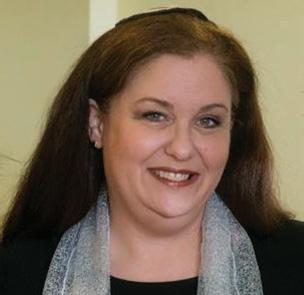
Olshein is one of eight North American rabbis from small congregations to collaborate on “Elul: Preparing for the High Holy Days,” a project intended to enrich congregants’ reflective experience in the busy and often stressful lead up to the High Holidays.
Twice a week, between Aug. 17 and Sept. 11, rabbis spend 20 minutes teaching and praying with anyone who logs on via Zoom to listen and learn. Olshein’s turn came Aug. 31. Each session is free and open to the public.
Olshein discussed the important act of forgiveness even when it feels impossible. To get to the heart of the question, “How do you move forward when you can’t forgive someone?,” she used illustrative examples, texts and a guided visual meditation on letting go.
Olshein has used guided meditation many times in her career and was trained in the method in rabbinical school. People who are comfortable with the experience might want to close their eyes during this portion, she explained.
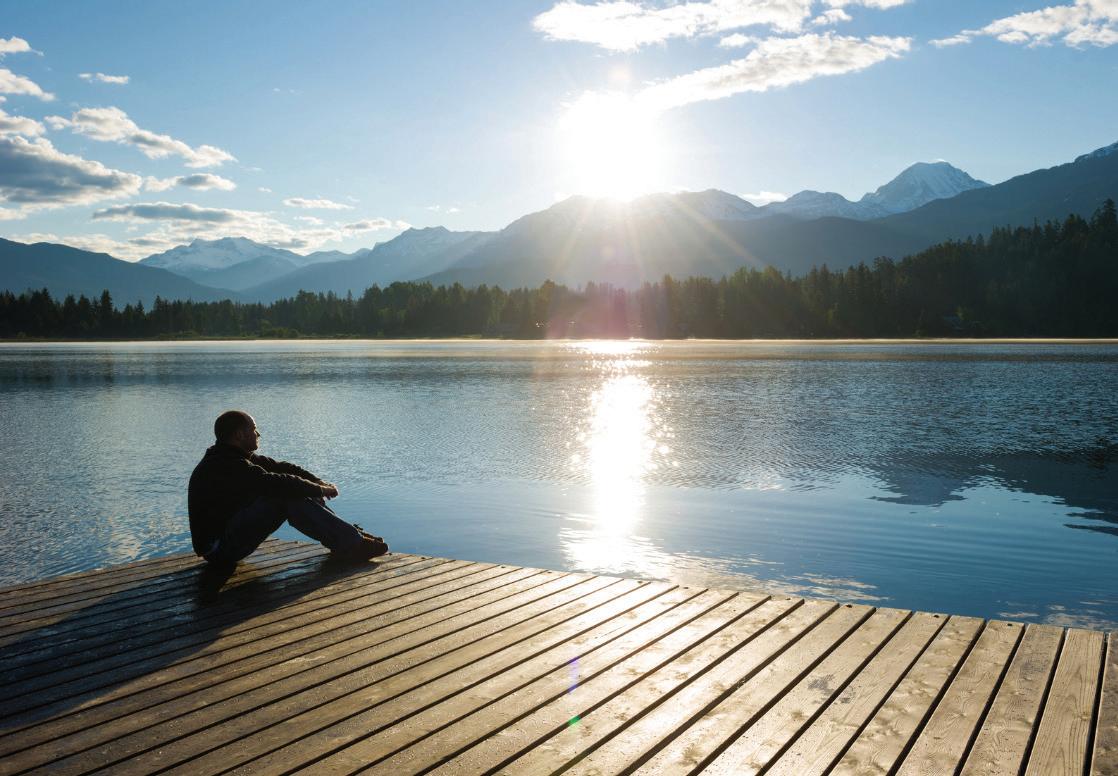
“I lead a guided meditation on the concept of release and moving forward, concentrating on the things that bring us pain and moving towards a life with less pain in it,” she said.
This was her third time joining the collaborative holiday programming, which was first begun by Rabbi Michael Birnholz of Temple Beth Shalom in Vero Beach, Florida.
After watching synagogues go virtual during the COVID-19 pandemic, he had the idea to collaborate with other rabbis of small congregations for Tikkun Leil Shavuot, the all-night study sessions for Shavuot.
It worked out so well, he continued to develop and adapt the idea for Yom Kippur, Chanukah, Purim, etc. It just kept growing and more than a few rabbis were willing to volunteer their time and efforts.
“I’m in a small congregation in an isolated part of Florida, and through these collaborations I’m developing friendships and partnerships. This way, we can offer much more learning to a bigger audience,” he said.
With facilitation assistance from the Central Conference of American Rabbis (CCAR) and the Union for Reform Judaism (URJ), Birnholz’s collaborative efforts have reached more small congregations and offered greater resources.
That’s one thing Olshein really appreciates as the lone clergy member at Temple Emanuel — with a lot on her plate.
“The collaboration piece is so important and it just makes sense when you don’t have a large clergy staff. It allows me to provide so much more quality programming than I could by myself, as a solo rabbi, especially during the busy season of Elul,” she said.
Olshein first heard about the holidayfocused learning sessions on a private Facebook page filled with CCAR rabbis. She volunteered the first year for the counting of the omer ritual.

The idea has become so successful that
within 24 hours of asking for volunteers for the Elul program all eight slots were filled, Birnholz said.
“It’s amazing to see something develop from the ground up rather than the top down. It demonstrates a response to a groundswell of need,” Olshein said.
Olshein posited that being on the journey of Elul with eight different teachers is very helpful. Birnholz agreed, saying that he appreciated watching and learning from his colleagues’ different styles and approaches.
While the sessions are brief, Olshein hopes it’s enough “to spark people’s interest in doing a deeper dive during the month of Elul,” she said. Arizonans and those on the west coast have the advantage of starting their mornings with them.
“It’s a great way to begin your day and set your intention right as the day begins,” Olshein said. JN To register, go to tinyurl.com/ElulStudy.
“I LEAD A GUIDED MEDITATION ON THE CONCEPT OF RELEASE AND MOVING FORWARD, CONCENTRATING ON THE THINGS THAT BRING US PAIN AND MOVING TOWARDS A LIFE WITH LESS PAIN IN IT.”


 LEAH KADOSH | KVELLER VIA JTA
LEAH KADOSH | KVELLER VIA JTA
Shanah Tovah, Happy, Healthy New Year! The Jewish New Year, Rosh Hashanah, is nearly here. I can tell this coming year is going to be a good one — the bar is already so low, we can only go up from here!
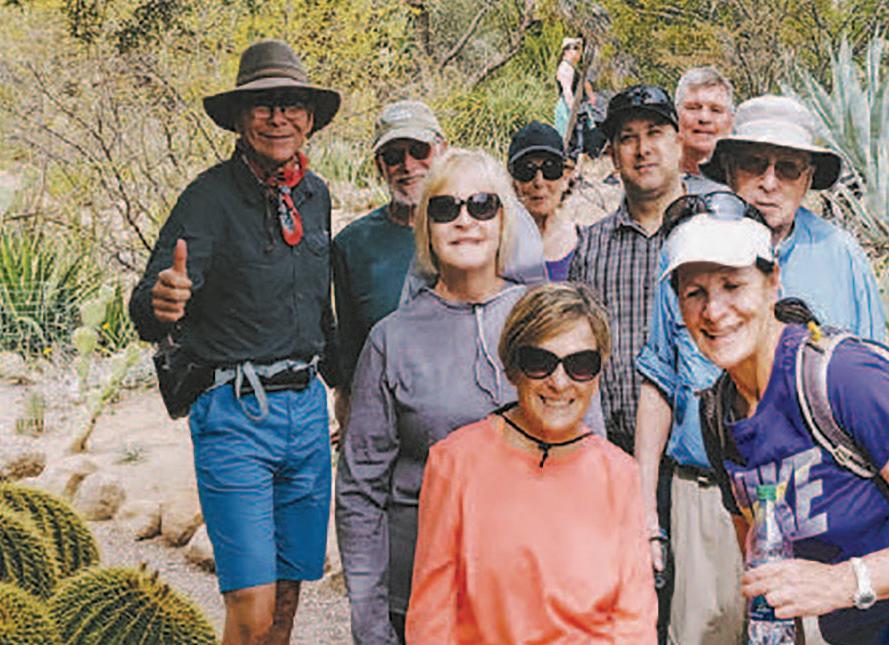
Rosh Hashanah, or “Head of the Year” is observed this year from sundown on September 15 through September 17.
Rosh Hashanah celebrates the beginning of the next year on the Hebrew lunar calendar and is a time of great reflection, repentance and, of course, guilt.
In honor of this very important Jewish holiday, we eat special foods, don white attire, hear the shofar, attend or stream services, give tzedakah, and, in my family, at least, make brisket and tzimmes (though I personally skip the tzimmes). Perhaps most importantly, we contemplate how we can improve our actions in the coming year. With all of the food, remorse, praying and thinking, Rosh Hashanah is the classic Jewish holiday.
So, take a break from your apple stamping project and enjoy these fun facts that are sure to make your Rosh Hashanah a blast:
1. This New Year corresponds to 5784

Wait, according to this date system, does that make me younger? The year 5784 counts the years since God created the world, as described in the very first portion of the Torah, Genesis Chapter 1. Just how did we arrive at this number? Many estimates were suggested by scholars, although Rabbi Yossi Ben Halafta’s calculation (which he made around 165 CE in Israel) became the most widely accepted.
Through careful study of the Hebrew Bible, with special emphasis on the dating of biblical figures’ lifetimes and kings’ reigns, the established date of 70 CE (the destruction of the Second Temple) was used as the end point, and counting started backwards from there. Rabbi Yossi Ben Halafta established that God created the world on Monday, October 7, 3761 BCE. (using Gregorian calendar terms). And now it’s math time: 3761+2023=5784!
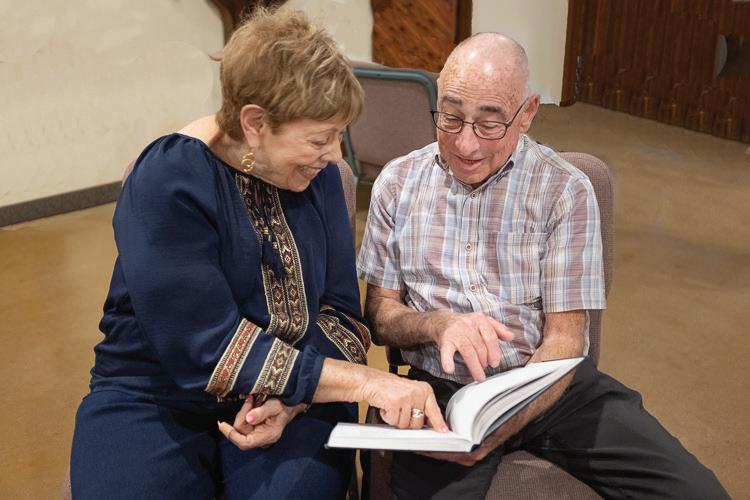
2. The name “Rosh Hashanah” is not mentioned in the Torah
It’s true: This major Jewish holiday is not mentioned by name in the Torah! Instead, it is referred to as Yom Teruah (Day of Sounding the Shofar) and Yom HaZikaron (Day of Remembering). The holiday becomes identified as “Rosh Hashanah” during the 1st century CE in Mishnah Rosh Hashanah 1.1.
3. Rosh Hashanah celebrates the New Year, but falls on the first day of the seventh month
Like so many Jewish holidays and traditions, there are several and conflicting theories as to how Rosh Hashanah evolved and how we came to celebrate the new year in the seventh month on the Hebrew calendar. Among the numerous interpretations, I wish to share my favorite: In the 13th century, Sephardic sage and rabbi Nachmonidies equated the counting from the months of Nissan (the first month of the Hebrew calendar) to Tishrei (the seventh) to be the same relationship as the first day of the week (Yom Rishon, which literally means “the first day”) with Shabbat (the seventh day). The number seven in Judaism holds sacred significance. It is associated with God’s six days of creation (special, but not super special) to the seventh day of rest, Shabbat (super special!). Counting seven months from the time of our Exodus from
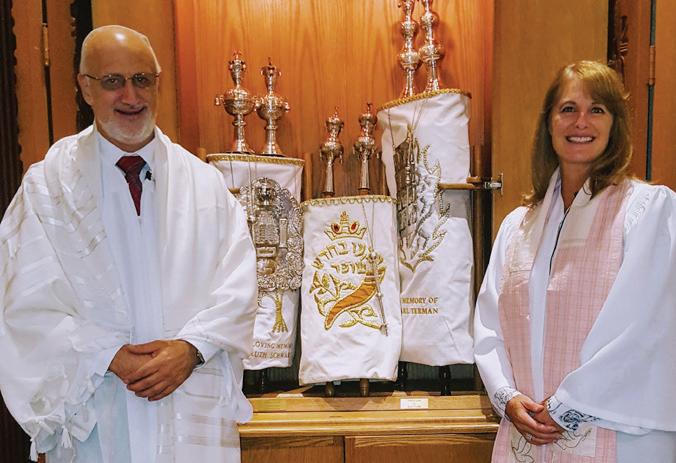
FACTS CONTINUED FROM PAGE 19
Egypt — which, you guessed it, happened in the month of Nissan — emphasizes the holiness of the seventh month of Tishrei, and is therefore the perfect excuse for a new year celebration.
4. Rosh Hashanah is a two-day festival, everywhere

As the song goes: Wherever you go… not only will you find someone Jewish, you will also celebrate Rosh Hashanah for two days. That’s true whether you’re in Israel or elsewhere! This is in contrast to other important biblical festivals, such as Sukkot, Passover and Shavuot, which are observed for an extra day in the diaspora (outside of Israel) — just to be sure the correct day is commemorated. (Why? Nearly 2,000 years ago, holiday start times were determined by moon-witness testimony, and then word was dispersed by foot. Extending the holiday by one day compensated for inevitable delays.)
Now, I know what you’re thinking: Why is Rosh Hashanah celebrated for two days even in Israel? Maimonides, 12th-century scholar and philosopher, explains that it is the only Jewish holiday that begins on the first day of a new month, and therefore, witnesses were not permitted to travel to alert their communities on the sighting of a new moon. To enable complete worship, two days were established and came to be known as yoma arichta, “a long day” lasting 48 hours. Ask any Rosh Hashanah host at the end of the second day, and I believe you’ll find that “yoma arichta” is the perfect description!




Because Rosh Hashanah is a rather serious holiday filled with introspection, repentance and self-improvement, our traditional foods symbolize those themes as well. In Ashkenazi tradition, apples are dipped in honey for the delight in literal sugary sweetness and the hope for a fulfilling year ahead. But that’s hardly the only traditional Rosh Hashanah food: There’s also round challah, as opposed to braided challah, which represents the yearly cycle and God’s crown or majesty. Fish heads are traditional in Sephardi Rosh Hashanah feasts — “better the head than the tail” is what I was always taught! (“Rosh” is also the Hebrew word for “head,” and therefore, there is a literal connection to beginnings.) Pomegranates are in season during this time in Israel, and are another traditional Rosh Hashanah treat. They were once thought to contain 613 seeds, the same number of mitzvot (commandments) in the Torah — just don’t tell my daughter, she just started counting!
6. But, strangely, it’s tradition to avoid nuts
It is a custom to abstain from eating nuts during Rosh Hashanah for a couple of reasons. According to the Shulchan Aruch, one of the most consulted Jewish law books written by Joseph Caro in the 16th century, nuts not only increase the production of saliva and phlegm in our mouths (a lovely thought) but could perhaps hurt our pronunciation of words recited during services. As any young Jewish child knows, services are already extremely long on Rosh Hashanah, therefore, anything that hinders our ability to pray should be avoided!
7. The shofar is an integral part of our High Holiday season, although it’s never blown on Shabbat
You heard me! As mentioned previously, one of Rosh Hashanah’s Biblical names was “Day of Sounding the Shofar,” and only two details are included in its observance as written in the Torah: to hear the shofar and to abstain from work. Shofars are horns taken from kosher animals and can vary greatly in size, color and shape. It also takes a skilled musician to make a decent sound — trust me, I’m not one of them!
The shofar is an ancient instrument of communication (figure our modern TV or cell phone alert) and had a multitude of purposes: to declare battle, welcome Shabbat and a New Moon, announce the reign of a new king and so on. Nowadays, one can hear the shofar blown after morning services every day (excluding Shabbat) in the month of Elul, the month preceding Rosh Hashanah — except for the last day, the day before Rosh Hashanah.
The unique sound of the shofar reminds us of an alarm, a reflective wake up call. Maimonides reasoned that the sound awakens our souls and calls to our attention our actions of our past and what we want to change in the future. We are tasked to analyze our relationship with God, ourselves and others and to change for the better.
As for the reason for abstaining from blowing the shofar on Shabbat, that’s due to the fear of carrying the instrument itself! The Talmud explains that it was not the actual sounding of the shofar that was forbidden, but the worry of an inadequate shofar blower carrying their shofar to an experienced shofar blower for help and training on Shabbat that was prohibited. If that is not the most Jewish reason for anything, I don’t know what is!
Wishing you and your family the most healthy, happy, fulfilling new year ahead with blessings abound, Shanah Tovah! JN

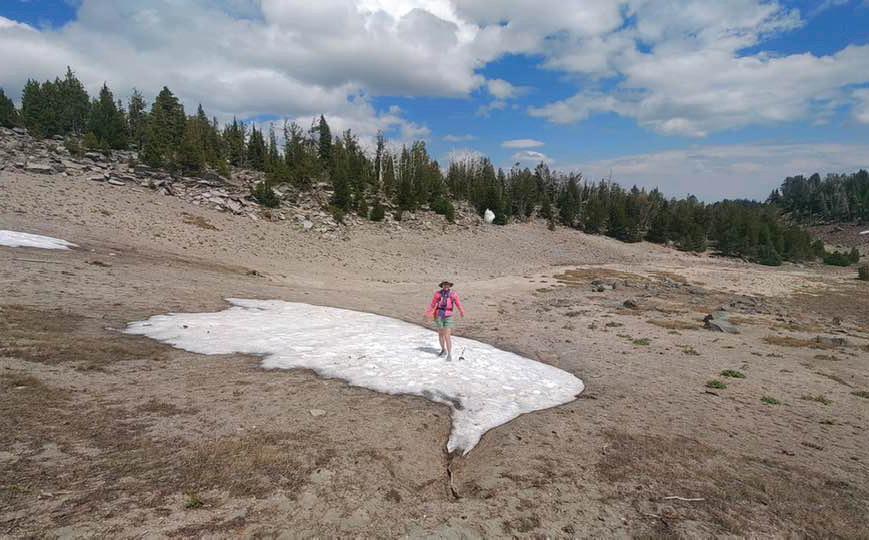
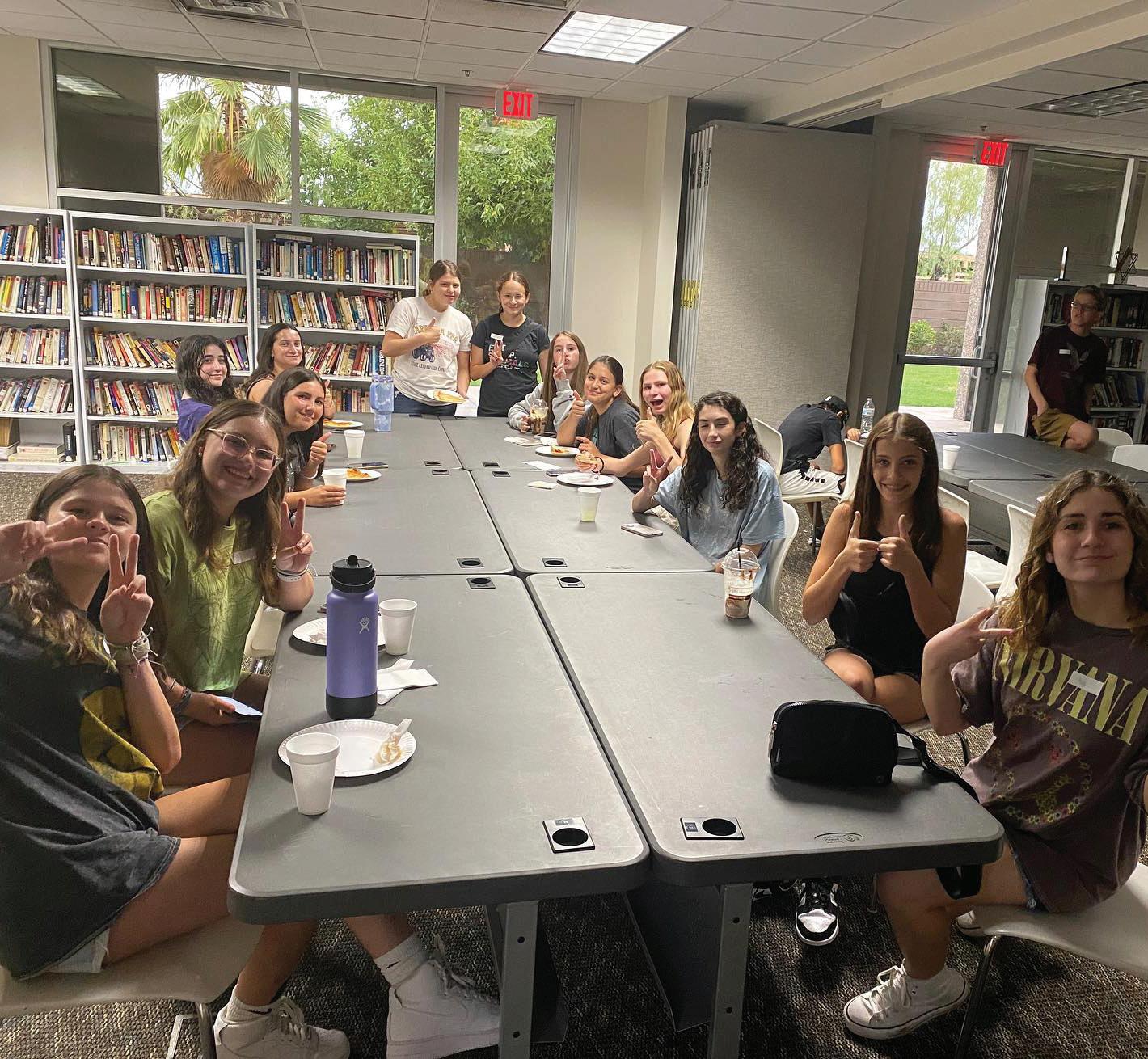
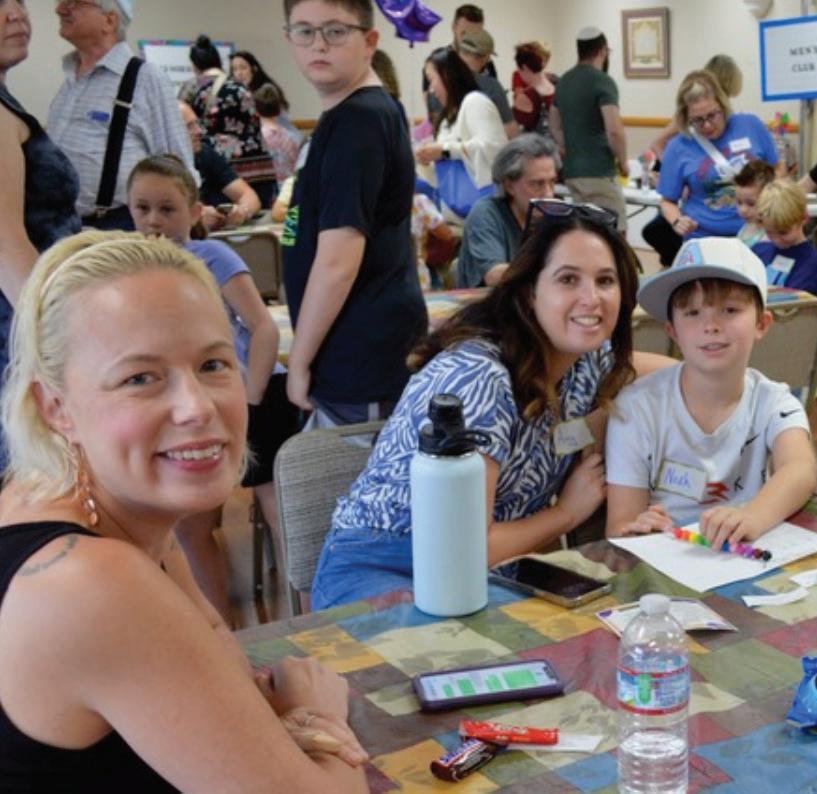
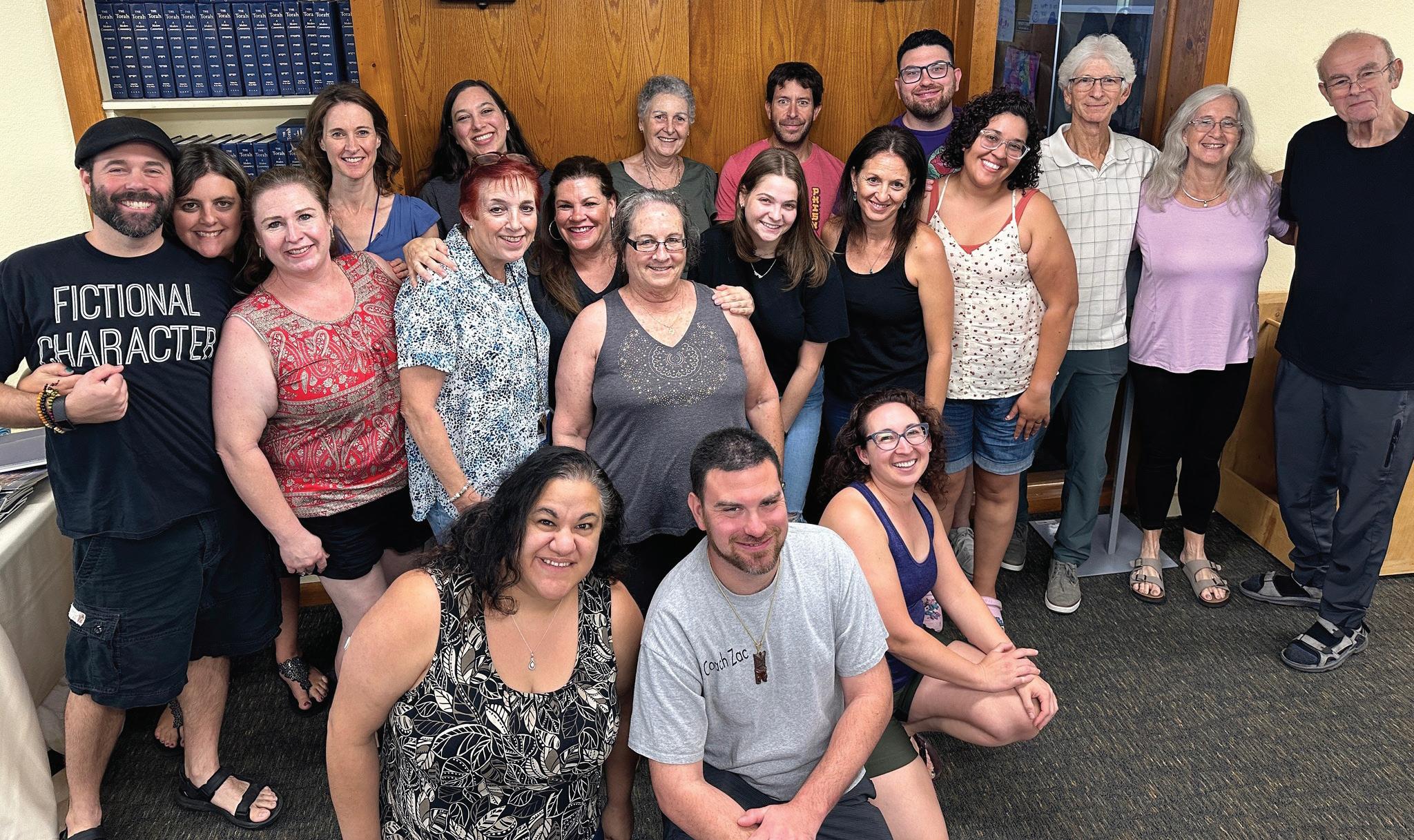
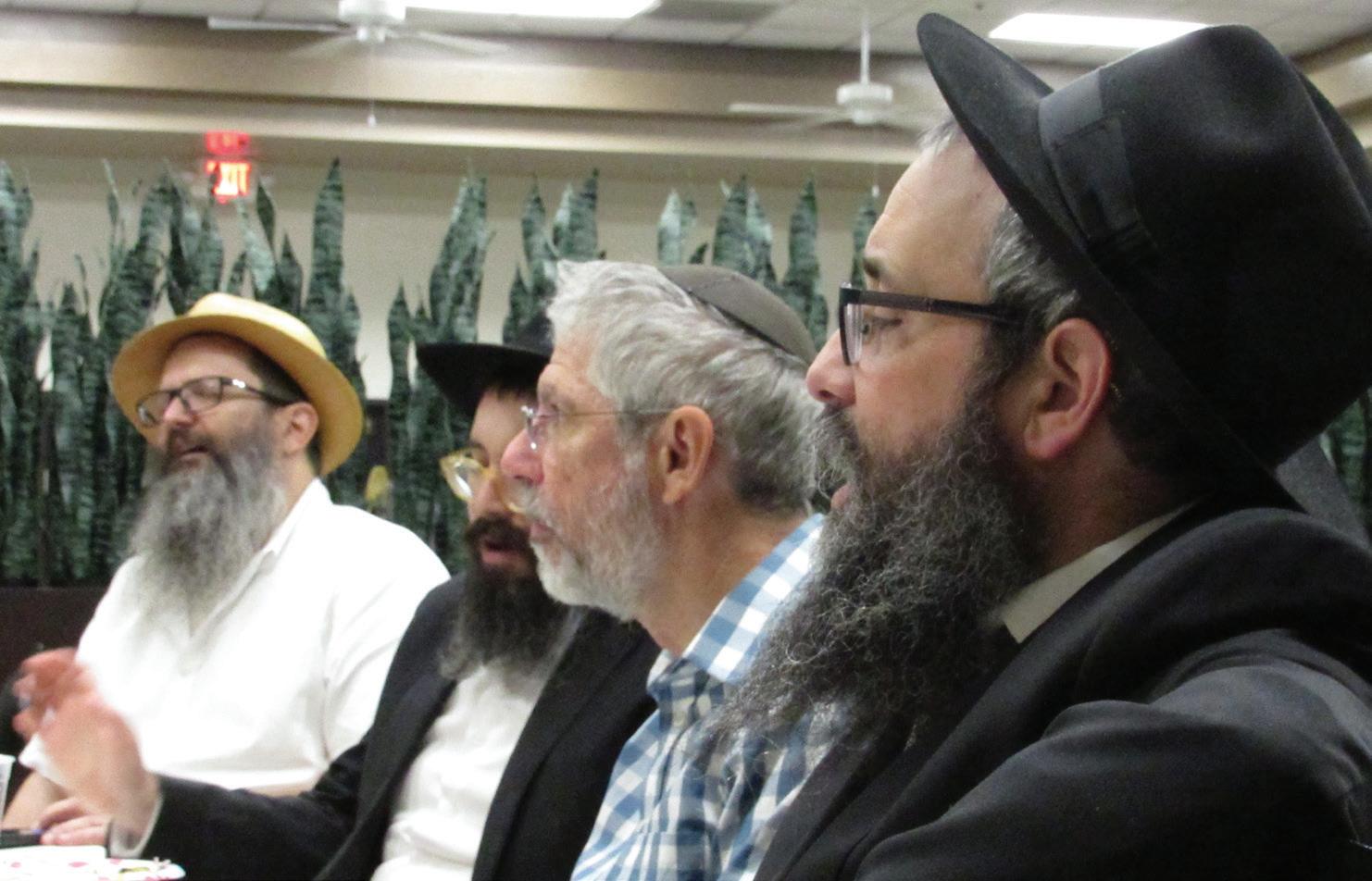
Jewish Baby University: 6:30-9 p.m. Ina Levine Jewish Community Campus, 12701 N. Scottsdale Road, Scottsdale. Join the Bureau of Jewish Education of Greater Phoenix for an informative program for expectant parents. Learn birthing instruction, birthing options, care of the newborn, breast & bottle feeding, along with the Jewish aspects of birthing, naming, Brit Milah, child rearing and Jewish parenting. Cost: $145 per couple. For more information, visit bjephoenix.org.
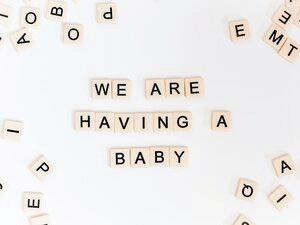
FRIDAY, SEPT. 1
Rosh Hashanah Family Shabbat and Holiday Bazaar: 5-7 p.m. Pardes Jewish Day School, 12753 N. Scottsdale Road, Scottsdale. Join the Bureau of Jewish Education of Greater Phoenix, PJ Library and Pardes Jewish Day School for a holiday bazaar with local vendors, giveaways, crafts, face painting, jump house and more. Cost: $18. For more information, visit bjephoenix.org.
SUNDAY, SEPT. 3
Pre-Rosh Hashanah Fair & BBQ: 12-2 p.m. Pollack Chabad Center for Jewish Life, 875 N. McClintock Drive. Chandler. Join Chabad of the East Valley for Israeli music, beekeeper and honey demonstration, challah making, honey cake decorating, apple tasting, shofar making (nominal fee) and a kosher BBQ (available for purchase). Cost: free; reservations required. For more information, visit chabadcenter.com/bbq.
A Journey of the Soul: 7-8 p.m. Location provided upon RSVP. Join Chabad of Ahwatukee for an exploration into the profound significance of the High Holidays. Cost: free. For more information, visit chabadahwatukee.com.
TUESDAY, SEPT. 5
Starting the High Holidays on a High: 10-11:30 a.m. East Valley Jewish Community Center, 908 N. Alma School Road, Chandler. Rabbi Laibel Blotner of Chabad of Mesa will give a presentation on “ Starting the High Holidays on a High.” Cost: free. For more information, visit evjcc.org/tuesdays.
WEDNESDAY, SEPT. 6
Esther Basch: The Honey Girl of Auschwitz: 7 p.m.; doors open at 6:15 p.m. Chandler Center for the Arts, 250 N. Arizona Ave., Chandler. Join Chabad of the East Valley for a presentation by 94-year old Prescott resident Esther Basch who survived the Auschwitz Death Camps after being sent there in a cattle car on her 16th birthday. Cost: $18 or $36; $25 or $45 after Aug. 25; $15 students. For more information, visit chabadcenter.com/event.
THURSDAY, SEPT. 7
Welcome Back Yoga: 5-7 p.m. Ina Levine Jewish Community Campus, 12701 N. Scottsdale Road, Scottsdale. Join the Center for Jewish Philanthropy’s Women IN Philanthropy for a yoga session with Jenni, certified yoga instructor. Cost: $18; registration closes at 5 p.m. on Sept. 6. For more information, visit phoenixcjp.regfox.com/ welcome-back-yoga.
FRIDAY, SEPT. 8
Open House Community Shabbat: 5:30 p.m. The Jewish Community of Sedona and the Verde Valley, 100 Meadow Lark Drive, Sedona. Join JCSVV for an open house and Oneg Shabbat of refreshments and socializing following Shabbat service. Cost: free. For more information, visit jcsvv.org.
Wine and Cheese Open House: 6 p.m. 3535 E. Lincoln Drive (inside Gloria Christi Federated Church), Paradise Valley. Join Beth Ami Temple adult congregation to learn more about its services, social groups, activities, guest speakers, concerts and community affairs projects. Cost: free; RSVP at bethamitemple@hotmail.com or call 602-956-0805. For more information, visit bethamitemple.org.
FRIDAY, SEPT. 8-SUNDAY SEPT. 10
PJ Library Family Camp: Camp Daisy and Harry Stein, 3400 W. Camp Pearlstein Road, Prescott. Join PJ Library for a family camp weekend including Shabbat services, sports, arts and crafts, rock wall, zipline, ropes course and more. For more information, visit phoenixcjp.regfox.com/ pj-library-family-camp.
SATURDAY, SEPT. 9
First Annual Swift Golf Tournament: 6:30 a.m.-2 p.m. Raven Golf Club, 3636 E. Baseline Road, Phoenix. Join Swift Youth Foundation for a golf tournament with proceeds going towards Swift’s weekly, monthly and annual programming that provides community, continuity and life-skill development throughout the year. For more information, visit swiftyouth.org/golf.html.
SUNDAY, SEPT. 10
Israeli Film Series: 8 a.m.-8 p.m. Online. Join the East Valley Jewish Community Center for the film, “Generation 1.5.” Sign up to receive the link and watch it from home anytime that day. Cost: free. For more information, visit evjcc.org/film/.
Center for Jewish Philanthropy Youth Board Meeting: 1-3 p.m. Ina Levine Jewish Community Campus, 12701 N. Scottsdale Road, Scottsdale. Join the B’nai Tzedek Youth Philanthropy Program of Greater Phoenix for first meeting of the year for teens. For more information, visit phoenixcjp.org/what-we-do/ bnai-tzedek-youth-philanthropy-program.
Women’s Health Symposium: 10:30-11:30 a.m. Congregation Beth Tefillah, 6529 E. Shea Blvd., Scottsdale. Join Chana Weisberg, editor of TheJewishWoman.org, for a lecture and panel discussion from professionals in women’s health and relationships. Cost: $36 per individual. For more information, visit bethtefillahaz.org/event/womenshealth-symposium.html.
SUNDAYS
B.A.G.E.L.S: 9-11 a.m.; last Sunday of the month. Valley of the Sun Jewish Community Center, 12701 N. Scottsdale Road, Scottsdale. Grab a bagel and a cup of coffee at Bagels And Gabbing Every Last Sunday and enjoy some time with your friends and make new ones. You must register to attend. Bagels and coffee will be provided. Cost: free for members, $5 for guests. For more information and to register, visit vosjcc.org.
THURSDAYS
Storytime at Modern Milk: 9:30 a.m. Modern Milk, 13802 N. Scottsdale Road, #163, Scottsdale. Storytime for babies, toddlers and preschoolers. Integrates children’s books and songs while giving parents new ideas for play. Cost: $5. For more information and to register, visit modernmilk.com/after-baby.
SUNDAYS Chassidus Class: 9 a.m. Online. Learn about the Chasidic movement with Rabbi Yossi Friedman. Cost: Free. For more information, visit chabadaz.com.
Jewish War Veterans Post 210: 10 a.m. Online. Any active duty service member or veteran is welcome to join monthly meetings, every third Sunday. Cost: free. For more information, email Michael Chambers at c365michael@yahoo.com.
Sundays are for the Family Weekly Feed: 3-5 p.m. Tempe Beach Park, 80 W. Rio Salado Pkwy., Tempe. Join Arizona Jews for Justice and AZ HUGS for the Houseless every Sunday to serve food to those in need. For more information and to RSVP, email Arizonajews4justice@gmail.com.
Anxiety in the Modern World: 6 p.m. Online. Learn the secrets of the Torah for living stress-free in the current environment with Rabbi Boruch of Chabad of Oro Valley. Cost: free. Tune in using this link: zoom. us/j/736434666. For more information, visit chabadaz.com.
MONDAYS
Ethics of Our Fathers: 7 p.m. Online. Learn with Rabbi Zalman Levertov. Tune in at: bit. ly/2Y0wdgv. Cost: free. For more information, visit chabadaz.com.
Quotable Quotes by our Sages: 7 p.m. Online. Learn with Rabbi Shlomy Levertov. Tune in at: JewishParadiseValley.com/ class. Cost: free. For more information, visit chabadaz.com.
Partners in Torah: 7:30 p.m. Online. Join a growing group of inspired learners with Project Inspire. Cost: free. Tune in at: us04web.zoom.us/j/3940479736#success, password is 613. For more information, email Robin Meyerson at robin@projectinspireaz. com.
Learning to Trust in God: 7:30 p.m. Online. Learn with Rabbi Yossi Friedman. Tune in at: ChabadAZ.com/LiveClass. Cost: free. For more information, visit chabadaz.com.
Torah & Tea: 7:30 p.m. Online. Learn with Rabbi Yossie Shemtov. Cost: free. For more information, visit Facebook.com/ChabadTucson.
TUESDAYS
Let’s Knit: 1:30 p.m. Ina Levine Jewish Community Campus, 12701 N. Scottsdale Road, Scottsdale. Share the pleasure of knitting, crocheting, etc. outside the social hall in the campus. Can’t knit? We can teach you! Every level welcome. Cost: free. For more information, visit vosjcc.org.
Maintaining an Upbeat Attitude: 7 p.m. Online. A class exclusively for people in their 20s and 30s, learn how Jewish Mysticism can help with your attitude with Rabbi Shlomy Levertov. Cost: free. Tune in at: JewishParadiseValley.com/YJPclass. For more information, visit chabadaz.com.
WEDNESDAYS
History of the Jews: 11 a.m. Online. Learn the Jewish journey from Genesis to Moshiach with Rabbi Ephraim Zimmerman. Cost: free. Tune in here: zoom.us/j/736434666. For more information, visit chabadaz.com.
Torah Study with Temple Beth Shalom of the West Valley: 11 a.m.-12:30 p.m. Online. Weekly study group explores that week’s portion and studies different perspectives and debates the merits of various arguments. Intended for adults, Torah study is open to students of all levels. For more information, contact the TBS office at 623-977-3240.
Happiness Hour: 11:30 a.m. Online. Class taught by Rabbi Pinchas Allouche that delves into texts and references culled from our traditions to address a relevant topic. For more information or to join, visit cbtvirtualworld.com.
Torah Study with Chabad: 12 p.m. Online. Take a weekly journey of Torah with Rabbi Yossi Levertov. Cost: free. For more information, visit chabadaz.com.
Lunch & Learn: 12:15 p.m. Online. Grab some food and learn with Rabbi Yehuda Ceitlin. Cost: Free. Get Zoom link by emailing info@ chabadtucson.com. For more information, visit chabadtucson.com.
The Thirteen Petalled Rose: 1 p.m. Online. Kabbalah class that studies “The Thirteen Petalled Rose” by Rabbi Adin Even-Israel Steinsaltz, focusing on the many concepts of Kaballah and Jewish Mysticism and applying them to everyday life. For more information or to join, visit cbtvirtualworld.com.
Mahjong: 1:30-3:30 p.m. East Valley Jewish Community Center, 908 N. Alma School Road, Chandler. Come play mahjong each week. For all levels. Cost: free; registration required at evjcc.org/mahjong/.
JACS: 7:30-8:30 p.m. Valley of the Sun Jewish Community Center, 12701 N. Scottsdale Road, Scottsdale. In person and via Zoom support group for Jewish alcoholics, addicts and their friends and family on the first and third Wednesdays of the month. Cost: Free. For more information, email jacsarizona@ gmail.com or call 602-692-1004.
Words & Whiskey: 8:30 p.m. Online. Learning session for men. Cost: Free. To RSVP, email rmollenaz@gmail.com or call/text 310709-3901.
THURSDAYS
Ladies Torah & Tea: 10:30 a.m. Online. Learn about the women of the Torah with Mrs. Leah Levertov. Cost: free. Tune in at: ourjewishcenter.com/virtual. For more information, visit chabadaz.com.
Talmud - Maakos: 11 a.m. Online. Learn with Rabbi Shlomy Levertov. Cost: free. Tune in at: JewishParadiseValley.com/YJPclass. For more information, visit chabadaz.com.
Mindfulness Gatherings: 12 p.m. Online. Hosted by Hospice of the Valley via Zoom. Cost: free. To join by phone, dial 1-253-2158782, meeting ID 486 920 2119#, to get the Zoom link or for further questions contact Gill Hamilton at ghamilton@hov.org or 602-748-3692.
The Science of Everything: 4 p.m. Online. Explore the most fundamental work of Chassidut: the Tanya, with Rabbi Boruch. Cost: free. Tune in at: zoom.us/j/736434666. For more information, visit chabadaz.com.
Teen Discussions: 7-8:30 p.m. Online. Learn with Rabbi Tzvi Rimler. Cost: free. Tune in at cteen.clickmeeting.com/east-valley. For more information, visit chabadaz.com.
SATURDAYS
Saturday Mindfulness Gatherings: 9:30 a.m. Online. Hosted by Hospice of the Valley. To join by phone, dial 1-253-215-8782, meeting ID 486 920 2119#. To get the Zoom link or for more information, contact Gill Hamilton at ghamilton@hov.org or 602-748-3692.


Book Discussion: 1:30-2:30 p.m. Online. Join Or Adam Congregation for Humanistic Judaism on the third Saturday of every month for a book discussion. For more information and to register, contact oradaminfo@gmail.com.
Shabbat
FRIDAYS
Shabbat in the Park: 10-11 a.m. Cactus Park, 7202 E. Cactus Road, Scottsdale. Join the Bureau of Jewish Education of Greater Phoenix monthly for music, parachute play, crafts and a family Shabbat experience. For more information, visit bjephoenix.org.
Welcome Shabbat: 11-11:30 a.m. Online. Celebrate Shabbat with the JFCS Virtual Center for Senior Enrichment. Each week a different guest host will lead the program with song and celebration. Cost: free. For more information, visit jfcsaz.org/cse.
Shabbat at Beth El: 11-11:45 a.m. Beth El Phoenix, 1118 W. Glendale. Ave., Phoenix. Celebrate Shabbat with songs, blessings and teachings with Rabbi Stein Kokin the first Friday of every month. Special guests will be welcoming Shabbat during the remainder of the month. For more information or to join, visit bethelphoenix.com.
Erev Shabbat Service: 5:30 p.m. Online.
Rabbi Alicia Magal will lead a service livestreamed for members of the Jewish Community of Sedona and the Verde Valley. Cost: free. For more information and to obtain the Zoom link, visit jcsvv.org/contact.
Shabbat Services: 5:30 p.m. nosh, 6:15 p.m. service; morning varying dates and times. Temple Chai, 4645 E. Marilyn Road, Phoenix. For more information, contact Sheana Abrams at (602) 971-1234 or sabrams@ templechai.com.
Pre-Shabbat Kiddush Club: 6 p.m. Online. Say Kiddush with Rabbi Mendy Levertov. Cost: free. Tune in here: ourjewishcenter. com/virtual. For more information, visit chabadaz.com.
Shabbat Services: 6 p.m; 9:30 a.m. Congregation Or Tzion, 16415 N. 90th St., Scottsdale. Services are also live streamed at otaz. org/livestream. For more information about services, events and membership, visit congregationortzion.org or call 480-342-8858.
Shabbat Services: 6:15 p.m; 10 a.m. Congregation Beth Israel, 10460 N. 56th St., Scottsdale. Services held in the Goldsmith Sanctuary. Participants must pre-register by Thursday at 5 p.m. Priority will be given to members first and then guests. If there are more requests than available seats a lottery system will be used. For more information or to make a reservation, visit cbiaz.org/ shabbat-services.
Kabbalat Shabbat and/or Shabbat morning service: 6:30 p.m.; 10 a.m.; dates vary. Congregation Kehillah, 5858 E. Dynamite Blvd., Cave Creek. Join Rabbi Bonnie Sharfman and cantorial soloists Erica Erman and Scott Leader either in person or via Zoom. For safety reasons, please register ahead of time. For dates, visit congregationkehillah. org/event/. Register by emailing info@congregationkehillah.org.
Third Friday Shabbat: 7-9 p.m. Group meets at a North Scottsdale location. The Desert Foothills Jewish Community Association hosts a Shabbat service followed by a program. Contact Andrea at 480-664-8847 for more information.
Shabbat Services with Sun Lakes: 7 p.m. Sun Lakes Chapel, 9240 E. Sun Lakes Blvd. North, Sun Lakes. Sun Lakes Jewish Congregation conducts services on the second Friday of the month. For more information, contact 480-612-4413.
Shabbat Services with Beth Ami Temple: 7:30 p.m. Gloria Christi Federated Church, 3535 E. Lincoln Dr., Paradise Valley. Rabbi Alison Lawton and Cantorial Soloist Michael Robbins lead Shabbat services twice a month. For more information, visit bethamitemple.org.
Seniors
MONDAYS
Fitness Xpress Series with Zoe: 11-11:30 a.m. Online. Presented by JFCS Center for Senior Enrichment. Workout features weight and band exercises as well as yoga poses. Exercises will be demonstrated standing, but can also be done sitting in a chair. Cost: free. For more information, visit jfcsaz.org/cse.
Sip & Schmooze: 11 a.m. milk + honey, 12701 N. Scottsdale Road, Scottsdale. Sip on kosher coffee or tea, enjoy a pastry and schmooze every second Monday of the month. RSVP appreciated to chani@sosaz. org or 602-492-7670. For more information, visit sosaz.org.
Featured Presentation: 12:30 p.m. Online. Join Smile on Seniors Mondays and Wednesdays to learn from a variety of presenters about topical issues, like Q&As with
medical professionals, entertainers and lectures. Cost: free. For more information, visit sosaz.org/virtual or email Rabbi Levi Levertov at levi@sosaz.org.
TUESDAYS
Movie Discussion Group: 11 a.m. Online. Join Smile on Seniors on the third Tuesday of every month hosted by Issy Lifshitz. Cost: free. For full details and the movie of the month visit sosaz.org/virtual or email Rabbi Levi Levertov at levi@sosaz.org.
WEDNESDAYS
Fitness Fun with Zoe: 10-10:45 a.m. Online. Presented by JFCS Center for Senior Enrichment. Workout features light chair exercises with optional weights. Cost: free. For more information, visit jfcsaz.org/cse.
Chair Yoga with Zoe: 11-11:45 a.m. Online. Presented by JFCS Center for Senior Enrichment. 45-minute chair yoga class. No prior yoga experience required. Cost: free. For more information, visit jfcsaz.org/cse.
THURSDAYS

Memory Cafe: 10-11 a.m. first Thursday; 1-2 p.m. third Thursday. Online. Presented by Jewish Family & Children’s Service. Program for those with changes in their thinking or memory, mild cognitive impairment due to Alzheimer’s disease or a related disorder, along with their care partners. For more information, visit jfcsaz.org/our-services/ older-adult-services/memory-cafe/.
In the Kitchen with Benita: 12:30 p.m. Join Smile on Seniors on the fourth Thursday of every month for some delicious cooking or baking fun! Cost: free. For full details visit sosaz.org/virtual or email Rabbi Levi Levertov at levi@sosaz.org.
FRIDAYS
Welcome Shabbat: 11-11:30 a.m. Online. Celebrate Shabbat with the JFCS Virtual Center for Senior Enrichment. Each week a different guest host will lead the program with song and celebration. Cost: free. For more information, visit jfcsaz.org/cse.
Sit or Stand Ballet Class: 12-12:45 p.m. Online. Presented by JFCS Center for Senior Enrichment. Jennifer Cafarella Betts and Friends from Ballet Theatre of Phoenix teach this class. Grab a chair or you can stand next to a chair or counter. Cost: free. For more information, visit jfcsaz.org/cse.
Musical Friday: 12:30 p.m. Online. Join Smile on Seniors on the first Friday of every month for a musical presentation. Cost: free. For full details visit sosaz.org/virtual or email Rabbi Levi Levertov at levi@sosaz.org. JN
